| Medal Totals | Gold | Silver | Bronze |
|---|---|---|---|
| Canada | 9 | 4 | 3 |
| Czech Republic | 1 | 0 | 1 |
| Czechslovakia | 0 | 4 | 4 |
| Finland | 0 | 2 | 4 |
| Germany | 0 | 1 | 1 |
| Great Britain | 1 | 0 | 1 |
| Russia | 2 | 1 | 1 |
| Sweden | 2 | 3 | 4 |
| Switzerland | 0 | 0 | 2 |
| USA | 2 | 8 | 1 |
| USSR | 7 | 1 | 1 |
| West Germany | 0 | 0 | 1 |
Olympic Men's Hockey 1920‐1972
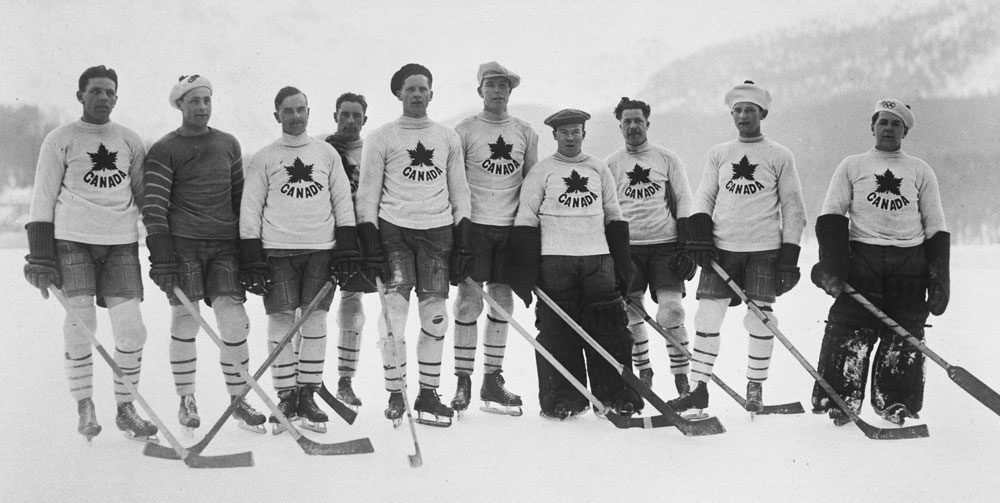
Year‐by‐Year Medals/Standings by Nation
| 1920 | 1924 | 1928 | 1932 | 1936 | 1948 | 1952 | 1956 | 1960 | 1964 | 1968 | 1972 | |
|---|---|---|---|---|---|---|---|---|---|---|---|---|
| Australia | 9 | |||||||||||
| Austria | NR | 8 | 8 | 10 | NR | |||||||
| Belarus | ||||||||||||
| Belgium | NR | NR | NR | NR | ||||||||
| Bulgaria | ||||||||||||
| Canada | 1 | 1 | 1 | 1 | 2 | 1 | 1 | 3 | 2 | 4 | 3 | |
| Czech Republic | ||||||||||||
| Czechoslovakia | 3 | NR | NR | 4 | 2 | 4 | 5 | 4 | 3 | 2 | 3 | |
| East German Republic | 8 | |||||||||||
| Finland | 7 | 7 | 6 | 5 | 5 | |||||||
| France | NR | NR | NR | NR | ||||||||
| Germany | NR | 3 | 5 | |||||||||
| Great Britain | 3 | 4 | 1 | 6 | ||||||||
| Hungary | NR | 7 | NR | |||||||||
| Italy | NR | 9 | 7 | NR | ||||||||
| Japan | NR | 8 | NR | 9 | ||||||||
| Kazakhstan | ||||||||||||
| Latvia | NR | |||||||||||
| Netherlands | ||||||||||||
| Norway | 9 | NR | NR | 8 | ||||||||
| Poland | NR | 4 | NR | 7 | 6 | 8 | NR | 6 | ||||
| Romania | NR | NR | ||||||||||
| Russia | ||||||||||||
| Slovakia | ||||||||||||
| Slovenia | ||||||||||||
| South Korea | ||||||||||||
| Sweden | 4 | 4 | 2 | 6 | 5 | 3 | 4 | 5 | 2 | 4 | 4 | |
| Switzerland | 5 | NR | 3 | NR | 3 | 5 | 9 | 8 | 10 | |||
| Ukraine | ||||||||||||
| USA | 2 | 2 | 2 | 3 | 4 | 2 | 2 | 1 | 5 | 6 | 2 | |
| USSR | 1 | 3 | 1 | 1 | 1 | |||||||
| West Germany | 8 | 6 | 6 | 7 | 7 | 7 | ||||||
| Yugoslavia | NR | NR | 11 |
| 1976 | 1980 | 1984 | 1988 | 1992 | 1994 | 1998 | 2002 | 2006 | 2010 | 2014 | 2018 | |
|---|---|---|---|---|---|---|---|---|---|---|---|---|
| Australia | ||||||||||||
| Austria | 8 | NR | 9 | 12 | 14 | 12 | 10 | |||||
| Belarus | 5 | 4 | 9 | |||||||||
| Belgium | ||||||||||||
| Bulgaria | 12 | |||||||||||
| Canada | 6 | 4 | 4 | 2 | 2 | 4 | 1 | 7 | 1 | 1 | 3 | |
| Czech Republic | 5 | 1 | 7 | 3 | 7 | 6 | 4 | |||||
| Czechoslovakia | 2 | 5 | 2 | 6 | 3 | |||||||
| East German Republic | ||||||||||||
| Finland | 4 | 4 | 6 | 2 | 7 | 3 | 3 | 6 | 2 | 3 | 3 | 6 |
| France | 11 | 8 | 10 | 11 | 14 | |||||||
| Germany | 6 | 7 | 9 | 8 | 10 | 11 | 2 | |||||
| Great Britain | NR | |||||||||||
| Hungary | ||||||||||||
| Italy | NR | 12 | 9 | 12 | 11 | |||||||
| Japan | 9 | 12 | NR | 13 | ||||||||
| Kazakhstan | 5 | 9 | ||||||||||
| Latvia | NR | 9 | 12 | 12 | 8 | |||||||
| Netherlands | 8 | |||||||||||
| Norway | 11 | NR | 12 | 9 | 11 | 10 | 12 | 8 | ||||
| Poland | 6 | 7 | 8 | 10 | 11 | NR | ||||||
| Romania | 7 | 9 | ||||||||||
| Russia | 1 | 4 | 2 | 3 | 4 | 6 | 5 | 1 | ||||
| Slovakia | 6 | 10 | 13 | 5 | 4 | 11 | 11 | |||||
| Slovenia | 7 | 9 | ||||||||||
| South Korea | 12 | |||||||||||
| Sweden | 3 | 3 | 3 | 5 | 1 | 5 | 5 | 1 | 5 | 2 | 5 | |
| Switzerland | 11 | 8 | 10 | 11 | 6 | 8 | 9 | 10 | ||||
| Ukraine | 10 | |||||||||||
| USA | 5 | 1 | 7 | 7 | 4 | 8 | 5 | 2 | 8 | 2 | 4 | 7 |
| USSR | 1 | 2 | 1 | 1 | ||||||||
| West Germany | 3 | 10 | 5 | 5 | ||||||||
| Yugoslavia | 10 | NR |
Medals Totals
Olympic Games Results 1920‐1972
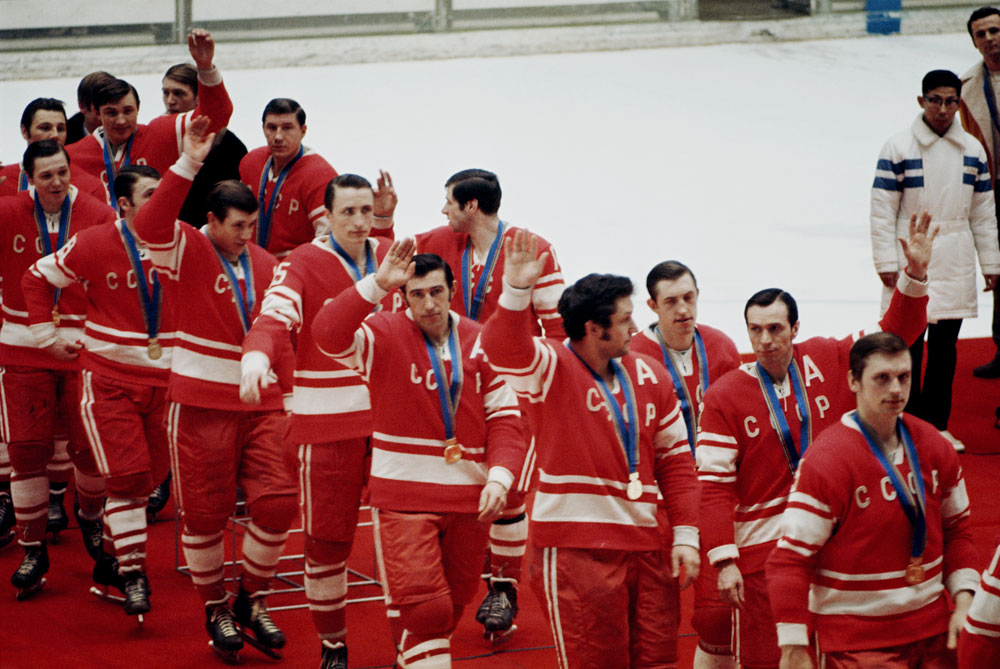
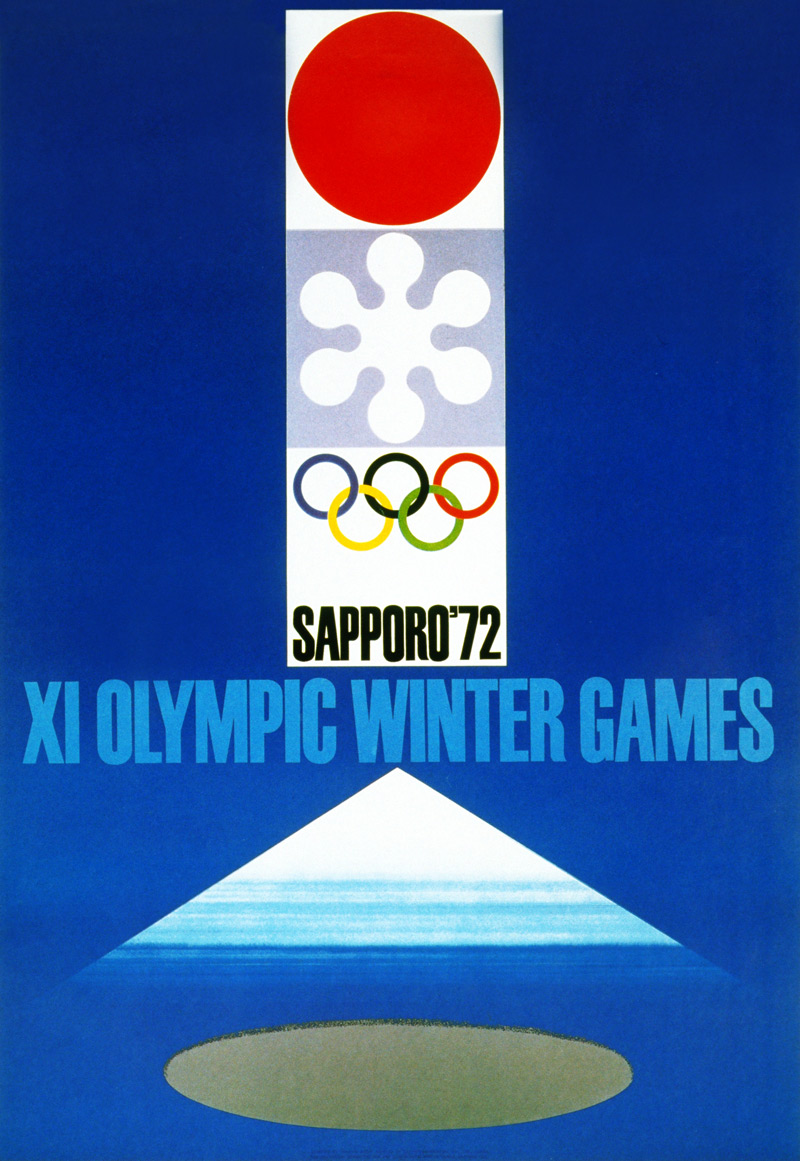
Team USSR
Team USA
Team Czechoslovakia
This was the first major international competition held in Japan. The 1940 Winter Games were scheduled for Sapporo, but were canceled following the outbreak World War II.
Canada withdrew from international competition in 1970 after the IIHF vetoed a proposal to allow the Canadian team to use nine minor league pros in that year's World Championship. The absence of the Canadians opened the way for a gold medal victory by the Soviet Union. An emphatic 5‐2 victory over Czechoslovakia in the final game secured the USSR's fourth championship.

Team USSR
Team USA
Team Czechoslovakia
The surprising American team defeated Czechoslovakia 5‐1 to claim the silver medal while their opponents settled for the bronze. Seeded sixth in the tournament, and already relegated to Pool B for the upcoming World Championship, the U.S. was led by future NHLers Mark Howe, Robbie Ftorek, Mike Curran and Henry Boucha.
In a separate five‐team group for non-contending teams, Germany and Norway tied for first place with six points ‐ one point ahead of the Japanese.
| Rank | Country | Games | Wins | Losses | OT Losses | Points |
|---|---|---|---|---|---|---|
| 1 | USSR | 5 | 4 | 0 | 1 | 9 |
| 2 | USA | 6 | 4 | 2 | 0 | 8 |
| 3 | Czechoslovakia | 6 | 4 | 2 | 0 | 8 |
| 4 | Sweden | 6 | 3 | 2 | 1 | 7 |
| 5 | Finland | 6 | 3 | 3 | 0 | 6 |
| 6 | Poland | 6 | 1 | 5 | 0 | 2 |
| 7 | West Germany | 5 | 3 | 2 | 0 | 6 |
| 8 | Norway | 5 | 3 | 2 | 0 | 6 |
| 9 | Japan | 5 | 2 | 2 | 1 | 5 |
| 10 | Switzerland | 5 | 0 | 3 | 2 | 2 |
| 11 | Yugoslavia | 5 | 0 | 4 | 1 | 1 |
Chronology
| Description | Team | Score | Team | Score |
|---|---|---|---|---|
| Qualification games | Japan | 2 | Czechoslovakia | 8 |
| Qualification games | Yugoslavia | 1 | Sweden | 8 |
| Qualification games | Norway | 1 | Finland | 13 |
| Qualification games | Poland | 4 | West Germany | 0 |
| Qualification games | Switzerland | 3 | USA | 5 |
| 1st to 6th place | USA | 1 | Sweden | 5 |
| 1st to 6th place | Poland | 1 | Czechoslovakia | 14 |
| 1st to 6th place | Finland | 3 | USSR | 9 |
| 1st to 6th place | Sweden | 3 | USSR | 3 |
| 1st to 6th place | USA | 5 | Czechoslovakia | 1 |
| 1st to 6th place | Poland | 1 | Finland | 5 |
| 1st to 6th place | Finland | 1 | Czechoslovakia | 7 |
| 1st to 6th place | Poland | 3 | Sweden | 5 |
| 1st to 6th place | USA | 2 | USSR | 7 |
| 1st to 6th place | Poland | 3 | USSR | 9 |
| 1st to 6th place | Sweden | 1 | Czechoslovakia | 2 |
| 1st to 6th place | USA | 4 | Finland | 1 |
| 1st to 6th place | USA | 6 | Poland | 1 |
| 1st to 6th place | Finland | 4 | Sweden | 3 |
| 1st to 6th place | Czechoslovakia | 2 | USSR | 5 |
| Description | Team | Score | Team | Score |
|---|---|---|---|---|
| 7th to 11th place | Yugoslavia | 2 | Norway | 5 |
| 7th to 11th place | West Germany | 5 | Switzerland | 0 |
| 7th to 11th place | Japan | 3 | Switzerland | 3 |
| 7th to 11th place | Yugoslavia | 2 | West Germany | 6 |
| 7th to 11th place | Japan | 3 | Yugoslavia | 2 |
| 7th to 11th place | Norway | 1 | West Germany | 5 |
| 7th to 11th place | Japan | 4 | Norway | 5 |
| 7th to 11th place | Yugoslavia | 3 | Switzerland | 3 |
| 7th to 11th place | Japan | 7 | West Germany | 6 |
| 7th to 11th place | Norway | 5 | Switzerland | 3 |
Statistical Leaders
Top 15 Total Point Leaders
| Player | Country | No. | GP | G | A | P | PIM |
|---|---|---|---|---|---|---|---|
| KHARLAMOV, Valeri | USSR | 17 | 5 | 9 | 7 | 16 | 2 |
| NEDOMANSKY, Vaclav | Czechoslovakia | 14 | 6 | 8 | 3 | 11 | 0 |
| SARNER, Craig | USA | 17 | 6 | 4 | 6 | 10 | 0 |
| AHEARN, Kevin | USA | 16 | 6 | 6 | 3 | 9 | 0 |
| HLINKA, Ivan | Czechoslovakia | 21 | 6 | 5 | 3 | 8 | 2 |
| VIKULOV, Vladimir | USSR | 18 | 5 | 5 | 3 | 8 | 0 |
| MONONEN, Lauri | Finland | 18 | 5 | 7 | 0 | 7 | 6 |
| KOCHTA, Jiri | Czechoslovakia | 8 | 6 | 4 | 3 | 7 | 0 |
| MALTSEV, Alexander | USSR | 10 | 5 | 4 | 3 | 7 | 0 |
| FIRSOV, Anatoli | USSR | 11 | 5 | 2 | 5 | 7 | 0 |
| TURUNEN, Timo | Finland | 19 | 5 | 2 | 5 | 7 | 2 |
| PALMQVIST, Bjorn | Sweden | 18 | 6 | 5 | 1 | 6 | 0 |
| HAMMARSTROM, Inge | Sweden | 19 | 6 | 4 | 2 | 6 | 0 |
| MARTINEC, Vladimir | Czechoslovakia | 10 | 6 | 4 | 2 | 6 | 0 |
| RANTASILA, Juha | Finland | 4 | 3 | 4 | 2 | 6 | 4 |
Top 5 Goal Scorers
| Player | Country | No. | GP | G |
|---|---|---|---|---|
| KHARLAMOV, Valeri | USSR | 17 | 5 | 9 |
| NEDOMANSKY, Vaclav | Czechoslovakia | 14 | 6 | 8 |
| MONONEN, Lauri | Finland | 18 | 5 | 7 |
| AHEARN, Kevin | USA | 16 | 6 | 6 |
| HLINKA, Ivan | Czechoslovakia | 21 | 6 | 5 |
Top 5 Assist Leaders
| Player | Country | No. | GP | A |
|---|---|---|---|---|
| KHARLAMOV, Valeri | USSR | 17 | 5 | 7 |
| SARNER, Craig | USA | 17 | 6 | 6 |
| FARDA, Richard | Czechoslovakia | 11 | 6 | 5 |
| FIRSOV, Anatoli | USSR | 11 | 5 | 5 |
| TURUNEN, Timo | Finland | 19 | 5 | 5 |
Top 10 Leading Goaltenders
| Player | Country | No. | GPT | GKD | GPI | MIP | MIP% | GA | SVS | SOG | SVS% | GAA | SO | W | T | L |
|---|---|---|---|---|---|---|---|---|---|---|---|---|---|---|---|---|
| DZURILLA, Vladimir | Czechoslovakia | 1 | 5 | - | - | 222 | - | 7 | - | - | - | 1.89 | - | - | - | - |
| ABRAHAMSSON, Christer | Sweden | 2 | 3 | - | - | 180 | - | 7 | - | - | - | 2.33 | - | - | - | - |
| HOLMQVIST, Leif | Sweden | 1 | 3 | - | - | 180 | - | 7 | - | - | - | 2.33 | - | - | - | - |
| TRETIAK, Vladislav | USSR | 20 | 4 | - | - | 240 | - | 10 | - | - | - | 2.50 | - | - | - | - |
| CURRAN, Mike | USA | 30 | 6 | - | - | 360 | - | 18 | - | - | - | 3.00 | - | - | - | - |
| PASHKOV, Alexander | USSR | 1 | 1 | - | - | 60 | - | 3 | - | - | - | 3.00 | - | - | - | - |
| HOLECEK, Jiri | Czechoslovakia | 2 | 3 | - | - | 138 | - | 8 | - | - | - | 3.48 | - | - | - | - |
| VALTONEN, Jorma | Finland | 1 | 6 | - | - | - | - | 25 | - | - | - | 4.17 | - | - | - | - |
| KOSYL, Walery | Poland | 20 | 6 | - | - | 280 | - | 28 | - | - | - | 6.00 | - | - | - | - |
| TKACZ, Andrzej | Poland | 1 | 3 | - | - | 80 | - | 15 | - | - | - | 11.25 | - | - | - | - |
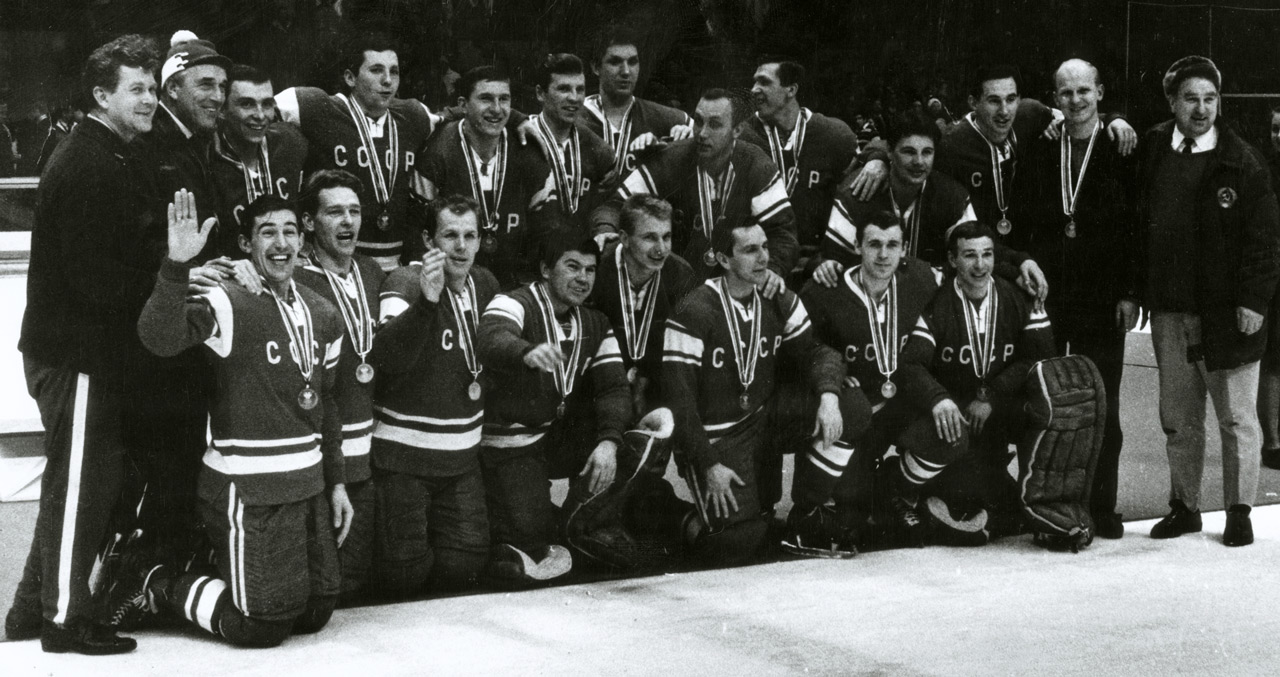
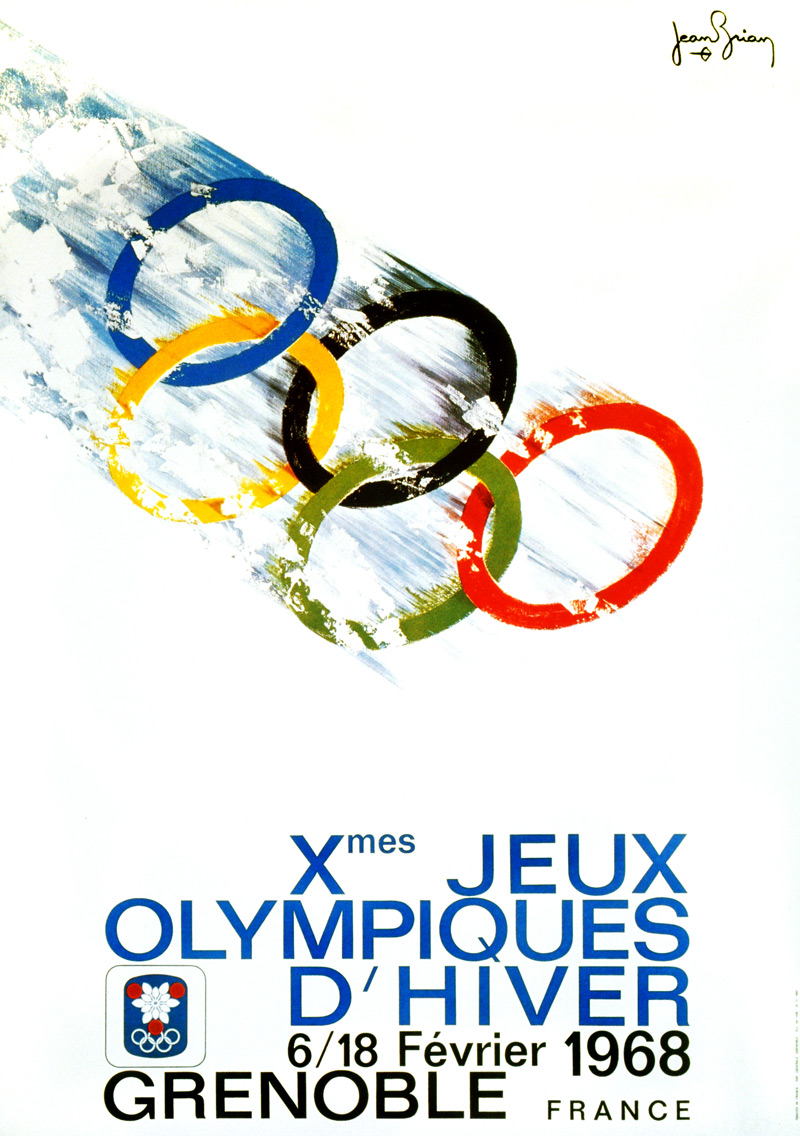
Team USSR
Team Czechoslovakia
Team Canada
Times seemed golden for Czechoslovakia after they won 5‐4 over the tournament‐favourite USSR. This loss snapped the Soviet's streak of 39 straight victories in Olympic and World competition dating back to 1963. That equaled the record set by Canada between 1936 and 1948.

Team USSR
Team Czechoslovakia
Team Canada
Czechoslovakia headed into the final game needing a win against Sweden to claim their first Olympic title, but had to settle for the silver medal after a 2‐2 tie. The Canadian squad claimed the bronze in spite of a 5‐0 loss to the gold-medalist Soviet Union on the final day.
The 1968 Olympic tournament marked the last time in which the Olympic, World, and European titles would all be decided on the basis of one event.
| Rank | Country | Games | Wins | Losses | OT Losses | Points |
|---|---|---|---|---|---|---|
| 1 | USSR | 7 | 6 | 1 | 0 | 12 |
| 2 | Czechoslovakia | 7 | 5 | 1 | 1 | 11 |
| 3 | Canada | 7 | 5 | 2 | 0 | 10 |
| 4 | Sweden | 7 | 4 | 2 | 1 | 9 |
| 5 | Finland | 8 | 4 | 3 | 1 | 9 |
| 6 | USA | 7 | 2 | 4 | 1 | 5 |
| 7 | West Germany | 8 | 2 | 6 | 0 | 4 |
| 8 | East Germany | 8 | 1 | 7 | 0 | 2 |
| N/R | Norway | 1 | 0 | 1 | 0 | 0 |
| N/R | Romania | 1 | 0 | 1 | 0 | 0 |
| N/R | Yugoslavia | 1 | 0 | 1 | 0 | 0 |
Chronology
| Description | Team | Score | Team | Score |
|---|---|---|---|---|
| Pool A qualification | Yugoslavia | 2 | Finland | 11 |
| Pool A qualification | Norway | 1 | East German Republic | 3 |
| Pool A qualification | Romania | 0 | West Germany | 7 |
| Final Round | USA | 1 | Czechoslovakia | 5 |
| Final Round | Finland | 0 | USSR | 8 |
| Final Round | West Germany | 1 | Canada | 6 |
| Final Round | USA | 3 | Sweden | 4 |
| Final Round | East German Republic | 0 | USSR | 9 |
| Final Round | West Germany | 1 | Czechoslovakia | 5 |
| Final Round | Finland | 5 | Canada | 2 |
| Final Round | West Germany | 4 | Sweden | 5 |
| Final Round | USA | 2 | USSR | 10 |
| Final Round | East German Republic | 1 | Canada | 11 |
| Final Round | Finland | 3 | Czechoslovakia | 4 |
| Final Round | East German Republic | 2 | Sweden | 5 |
| Final Round | USA | 2 | Canada | 3 |
| Description | Team | Score | Team | Score |
|---|---|---|---|---|
| Final Round | West Germany | 1 | USSR | 9 |
| Final Round | East German Republic | 3 | Czechoslovakia | 10 |
| Final Round | Finland | 1 | Sweden | 5 |
| Final Round | West Germany | 1 | USA | 8 |
| Final Round | Sweden | 2 | USSR | 3 |
| Final Round | Canada | 3 | Czechoslovakia | 2 |
| Final Round | Finland | 3 | East German Republic | 2 |
| Final Round | USA | 6 | East German Republic | 4 |
| Final Round | Canada | 3 | Sweden | 0 |
| Final Round | Czechoslovakia | 5 | USSR | 4 |
| Final Round | West Germany | 1 | Finland | 4 |
| Final Round | West Germany | 4 | East German Republic | 2 |
| Final Round | Finland | 1 | USA | 1 |
| Final Round | Czechoslovakia | 2 | Sweden | 2 |
| Final Round | Canada | 0 | USSR | 5 |
Statistical Leaders
Top 15 Total Point Leaders
| Player | Country | No. | GP | G | A | P | PIM |
|---|---|---|---|---|---|---|---|
| FIRSOV, Anatoli | USSR | 11 | 7 | 12 | 4 | 16 | 4 |
| POLUPANOV, Viktor | USSR | 12 | 7 | 6 | 6 | 12 | 10 |
| STARSHINOV, Vyacheslav | USSR | 18 | 7 | 6 | 6 | 12 | 2 |
| VIKULOV, Vladimir | USSR | 17 | 7 | 2 | 10 | 12 | 2 |
| GOLONKA, Jozef | Czechoslovakia | 9 | 7 | 4 | 6 | 10 | 8 |
| HUCK, Fran | Canada | 9 | 7 | 4 | 5 | 9 | 10 |
| HRBATY, Jan | Czechoslovakia | 10 | 7 | 2 | 7 | 9 | 2 |
| MORRISON, John | USA | 10 | 7 | 2 | 6 | 8 | 10 |
| NEDOMANSKY, Vaclav | Czechoslovakia | 14 | 7 | 5 | 2 | 7 | 4 |
| JOHNSTON, Marshall | Canada | 10 | 7 | 2 | 5 | 7 | 2 |
| PETERS, Dietmar | East German Republic | 5 | 7 | 2 | 5 | 7 | 6 |
| MOTT, Morris | Canada | 20 | 7 | 5 | 1 | 6 | 2 |
| HAVEL, Jan | Czechoslovakia | 21 | 7 | 5 | 1 | 6 | 2 |
| BLINOV, Viktor | USSR | 4 | 7 | 4 | 2 | 6 | 10 |
| BOURBONNAIS, Roger | Canada | 8 | 7 | 4 | 2 | 6 | 0 |
Top 5 Goal Scorers
| Player | Country | No. | GP | G |
|---|---|---|---|---|
| FIRSOV, Anatoli | USSR | 11 | 7 | 12 |
| POLUPANOV, Viktor | USSR | 12 | 7 | 6 |
| STARSHINOV, Vyacheslav | USSR | 18 | 7 | 6 |
| MOTT, Morris | Canada | 20 | 7 | 5 |
| NEDOMANSKY, Vaclav | Czechoslovakia | 14 | 7 | 5 |
Top 5 Assist Leaders
| Player | Country | No. | GP | A |
|---|---|---|---|---|
| VIKULOV, Vladimir | USSR | 17 | 7 | 10 |
| HRBATY, Jan | Czechoslovakia | 10 | 7 | 7 |
| MORRISON, John | USA | 10 | 7 | 6 |
| CERNY, Josef | Czechoslovakia | 15 | 7 | 6 |
| GOLONKA, Jozef | Czechoslovakia | 9 | 7 | 6 |
Top 10 Leading Goaltenders
| Player | Country | No. | GPT | GKD | GPI | MIP | MIP% | GA | SVS | SOG | SVS% | GAA | SO | W | T | L |
|---|---|---|---|---|---|---|---|---|---|---|---|---|---|---|---|---|
| ZINGER, Viktor | USSR | 2 | 2 | - | - | - | - | 1 | - | - | - | 0.50 | - | - | - | - |
| STEPHENSON, Wayne | Canada | 21 | 3 | - | - | 140 | - | 3 | - | - | - | 1.28 | - | - | - | - |
| NADRCHAL, Vladimir | Czechoslovakia | 1 | 1 | - | - | 40 | - | 1 | - | - | - | 1.50 | - | - | - | - |
| KONOVALENKO, Viktor | USSR | 20 | 5 | - | - | 300 | - | 9 | - | - | - | 1.80 | - | - | - | - |
| DAHLLOF, Hans | Sweden | - | 1 | - | - | 60 | - | 2 | - | - | - | 2.00 | - | - | - | - |
| DZURILLA, Vladimir | Czechoslovakia | 18 | 7 | - | - | 380 | - | 16 | - | - | - | 2.53 | - | - | - | - |
| BRODERICK, Ken | Canada | 1 | 5 | - | - | 280 | - | 12 | - | - | - | 2.57 | - | - | - | - |
| HOLMQVIST, Leif | Sweden | 1 | 6 | - | - | 360 | - | 16 | - | - | - | 2.66 | - | - | - | - |
| RUPP, Patrick | USA | 1 | 7 | - | - | 380 | - | 18 | - | - | - | 2.84 | - | - | - | - |
| YLONEN, Urpo | Finland | 1 | 7 | - | - | - | - | 23 | - | - | - | 3.28 | - | - | - | - |
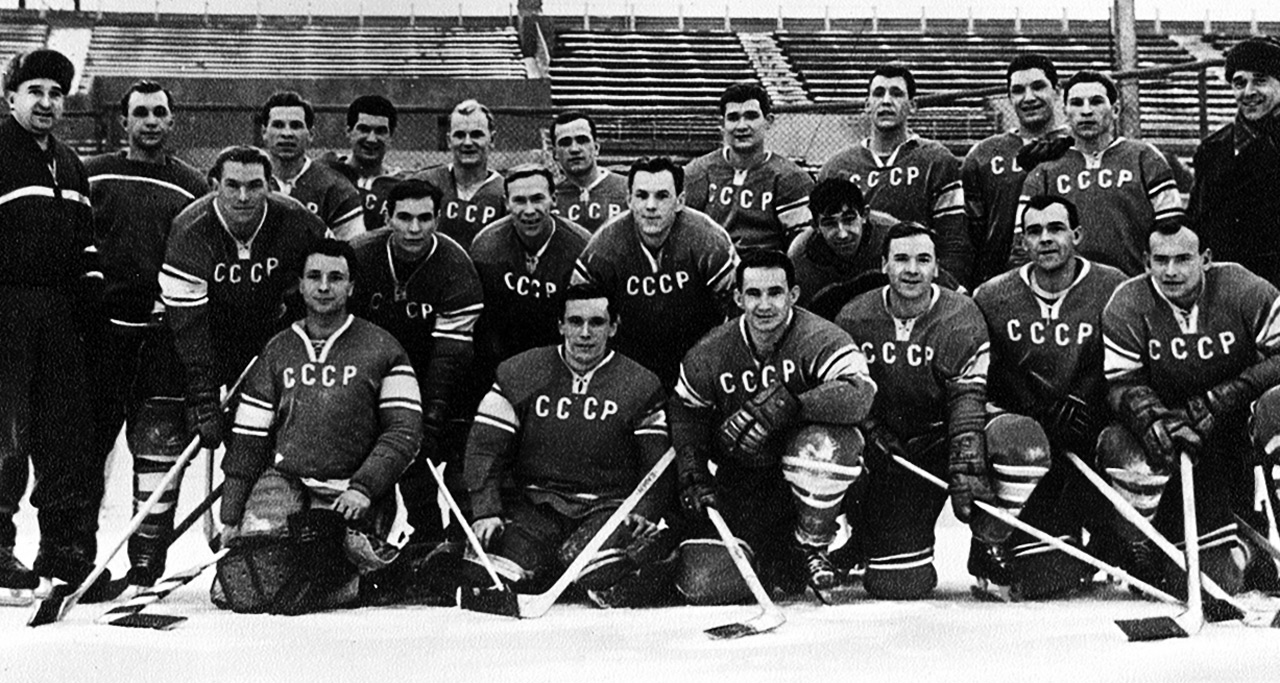
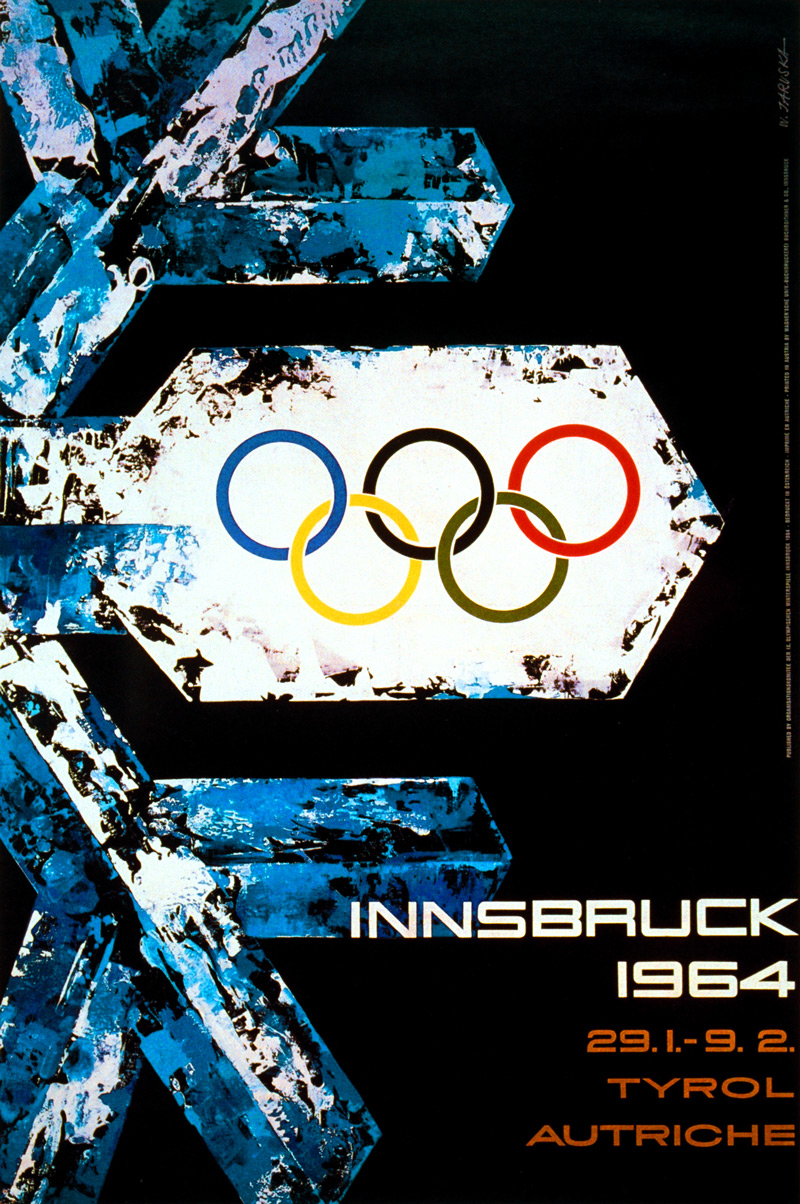
Team USSR
Team Sweden
Team Czechoslovakia
The Soviet Union claimed its second Olympic gold medal thanks to a narrow 3‐2 victory over Canada on the final day of the tournament. Canada, for the first time in international play, was represented by a National Team.
In the deciding gold‐medal game, the Canadians took a 2‐1 lead before Vyacheslav Starshinov tied the score with less than two minutes to play in the second period. The Soviets grabbed the momentum in the third, out shooting the Canadians 19‐7. Veniamin Alexandrov scored would proved to be the “golden” goal before the two-minute mark of the final period. The Soviets posted a perfect 7‐0‐0 record.
Sweden, Czechoslovakia and Canada all tied shared records of 5‐2‐0. But after much debate, Sweden was awarded the silver medal and the Czechoslovaks the bronze.

Team USSR
Team Sweden
Team Czechoslovakia
Throughout the tournament, Canadian officials had understood that in the case of a tie in the standings the winner would be determined by the goals for and against differential among the top four teams only. But IIHF officials decided the overall goals for and against differential would count, leaving Canada empty handed.
The best players honored at the tournament by the IIHF were goalie Seth Martin of Canada, defenseman Frantisek Tikal of Czechoslovakia and forward Boris Mayorov of the USSR. The coaches of the USSR team reversed the IIHF's selection of Mayorov and instead presented the award for best forward to Eduard Ivanov despite the fact that he was a defenseman. Ivanov was accepted as the official winner of the award in the IIHF record book.
| Rank | Country | Games | Wins | Losses | OT Losses | Points |
|---|---|---|---|---|---|---|
| 1 | USSR | 8 | 8 | 0 | 0 | 16 |
| 2 | Sweden | 8 | 6 | 2 | 0 | 12 |
| 3 | Czechoslovakia | 8 | 6 | 2 | 0 | 12 |
| 4 | Canada | 8 | 6 | 2 | 0 | 12 |
| 5 | USA | 8 | 3 | 5 | 0 | 6 |
| 6 | Finland | 8 | 3 | 5 | 0 | 6 |
| 7 | West Germany | 8 | 3 | 5 | 0 | 6 |
| 8 | Switzerland | 8 | 1 | 7 | 0 | 2 |
| N/R | Austria | 1 | 0 | 1 | 0 | 0 |
| N/R | Hungary | 1 | 0 | 1 | 0 | 0 |
| N/R | Italy | 1 | 0 | 1 | 0 | 0 |
| N/R | Japan | 1 | 0 | 1 | 0 | 0 |
| N/R | Norway | 1 | 0 | 1 | 0 | 0 |
| N/R | Poland | 1 | 0 | 1 | 0 | 0 |
| N/R | Romania | 1 | 0 | 1 | 0 | 0 |
| N/R | Yugoslavia | 1 | 0 | 1 | 0 | 0 |
Chronology
| Description | Team | Score | Team | Score |
|---|---|---|---|---|
| Pool A qualification | Hungary | 1 | USSR | 19 |
| Pool A qualification | Yugoslavia | 1 | Canada | 14 |
| Pool A qualification | Norway | 1 | Switzerland | 5 |
| Pool A qualification | Japan | 2 | Czechoslovakia | 17 |
| Pool A qualification | Italy | 2 | Sweden | 12 |
| Pool A qualification | Romania | 2 | USA | 7 |
| Pool A qualification | Poland | 1 | West Germany | 2 |
| Pool A qualification | Austria | 2 | Finland | 8 |
| Final Round | USA | 1 | USSR | 5 |
| Final Round | Czechoslovakia | 11 | West Germany | 1 |
| Final Round | Switzerland | 0 | Canada | 8 |
| Final Round | Finland | 4 | Switzerland | 0 |
| Final Round | Sweden | 1 | Canada | 3 |
| Final Round | USA | 8 | West Germany | 0 |
| Final Round | Czechoslovakia | 5 | USSR | 7 |
| Final Round | Finland | 0 | Czechoslovakia | 4 |
| Final Round | Switzerland | 0 | USSR | 15 |
| Final Round | USA | 4 | Sweden | 7 |
| Final Round | West Germany | 2 | Canada | 4 |
| Description | Team | Score | Team | Score |
|---|---|---|---|---|
| Final Round | Finland | 0 | Sweden | 7 |
| Final Round | USA | 6 | Canada | 8 |
| Final Round | Finland | 0 | USSR | 10 |
| Final Round | Switzerland | 1 | Czechoslovakia | 5 |
| Final Round | West Germany | 2 | Sweden | 10 |
| Final Round | Finland | 2 | Canada | 6 |
| Final Round | Switzerland | 0 | Sweden | 12 |
| Final Round | West Germany | 0 | USSR | 10 |
| Final Round | USA | 1 | Czechoslovakia | 7 |
| Final Round | West Germany | 6 | Switzerland | 5 |
| Final Round | Finland | 3 | USA | 2 |
| Final Round | USSR | 4 | Sweden | 2 |
| Final Round | Czechoslovakia | 3 | Canada | 1 |
| Final Round | West Germany | 2 | Finland | 1 |
| Final Round | Switzerland | 3 | USA | 7 |
| Final Round | USSR | 3 | Canada | 2 |
| Final Round | Sweden | 8 | Czechoslovakia | 3 |
Statistical Leaders
Top 15 Total Point Leaders
| Player | Country | No. | GP | G | A | P | PIM |
|---|---|---|---|---|---|---|---|
| JOHANSSON, Sven | Sweden | 13 | 7 | 8 | 3 | 11 | 0 |
| STERNER, Ulf | Sweden | 10 | 7 | 6 | 5 | 11 | 0 |
| DOLANA, Jiri | Czechoslovakia | 14 | 7 | 7 | 3 | 10 | 0 |
| STARSHINOV, Vyacheslav | USSR | 11 | 7 | 7 | 3 | 10 | 6 |
| YAKUSHEV, Viktor | USSR | 10 | 7 | 7 | 3 | 10 | 0 |
| MAYOROV, Boris | USSR | 12 | 6 | 7 | 3 | 10 | 0 |
| CERNY, Josef | Czechoslovakia | 15 | 7 | 5 | 5 | 10 | 2 |
| LOKTEV, Konstantin | USSR | 7 | 7 | 4 | 6 | 10 | 8 |
| ANDERSSON, Anders | Sweden | 16 | 7 | 7 | 2 | 9 | 8 |
| DINEEN, Gary | Canada | 9 | 7 | 3 | 6 | 9 | 10 |
| CONACHER, Brian | Canada | 24 | 7 | 7 | 1 | 8 | 6 |
| OHRLUND, Uno | Sweden | 14 | 6 | 7 | 1 | 8 | 2 |
| FORHAN, Bob | Canada | 14 | 7 | 7 | 0 | 7 | 0 |
| ALEXANDROV, Veniamin | USSR | 8 | 7 | 4 | 3 | 7 | 7 |
| FIRSOV, Anatoli | USSR | 13 | 7 | 4 | 3 | 7 | 2 |
Top 5 Goal Scorers
| Player | Country | No. | GP | G |
|---|---|---|---|---|
| JOHANSSON, Sven | Sweden | 13 | 7 | 8 |
| CONACHER, Brian | Canada | 24 | 7 | 7 |
| ANDERSSON, Anders | Sweden | 16 | 7 | 7 |
| DOLANA, Jiri | Czechoslovakia | 14 | 7 | 7 |
| FORHAN, Bob | Canada | 14 | 7 | 7 |
Top 5 Assist Leaders
| Player | Country | No. | GP | A |
|---|---|---|---|---|
| DINEEN, Gary | Canada | 9 | 7 | 6 |
| LOKTEV, Konstantin | USSR | 7 | 7 | 6 |
| STERNER, Ulf | Sweden | 10 | 7 | 5 |
| BLOME, Gert | Sweden | 2 | 7 | 5 |
| BOURBONNAIS, Roger | Canada | 8 | 7 | 5 |
Top 10 Leading Goaltenders
| Player | Country | No. | GPT | GKD | GPI | MIP | MIP% | GA | SVS | SOG | SVS% | GAA | SO | W | T | L |
|---|---|---|---|---|---|---|---|---|---|---|---|---|---|---|---|---|
| MARTIN, Seth | Canada | - | 6 | - | - | 245 | - | 5 | - | - | - | 1.22 | - | - | - | - |
| SVENSSON, Kjell | Sweden | 1 | 5 | - | - | 265 | - | 7 | - | - | - | 1.58 | - | - | - | - |
| KONOVALENKO, Viktor | USSR | 1 | 6 | - | - | 340 | - | 10 | - | - | - | 1.76 | - | - | - | - |
| NADRCHAL, Vladimir | Czechoslovakia | 17 | 6 | - | - | 350 | - | 15 | - | - | - | 2.57 | - | - | - | - |
| DZURILLA, Vladimir | Czechoslovakia | 1 | 2 | - | - | 70 | - | 4 | - | - | - | 3.43 | - | - | - | - |
| HAGGROTH, Lennart | Sweden | 15 | 3 | - | - | 155 | - | 9 | - | - | - | 3.48 | - | - | - | - |
| RUPP, Patrick | USA | - | 6 | - | - | 329 | - | 22 | - | - | - | 4.01 | - | - | - | - |
| BRODERICK, Ken | Canada | 1 | 6 | - | - | 175 | - | 12 | - | - | - | 4.11 | - | - | - | - |
| LAHTINEN, Juhani | Finland | - | 7 | - | - | 420 | - | 31 | - | - | - | 4.43 | - | - | - | - |
| JANSEN, Uli | West Germany | - | 5 | - | - | 300 | - | 30 | - | - | - | 6.00 | - | - | - | - |
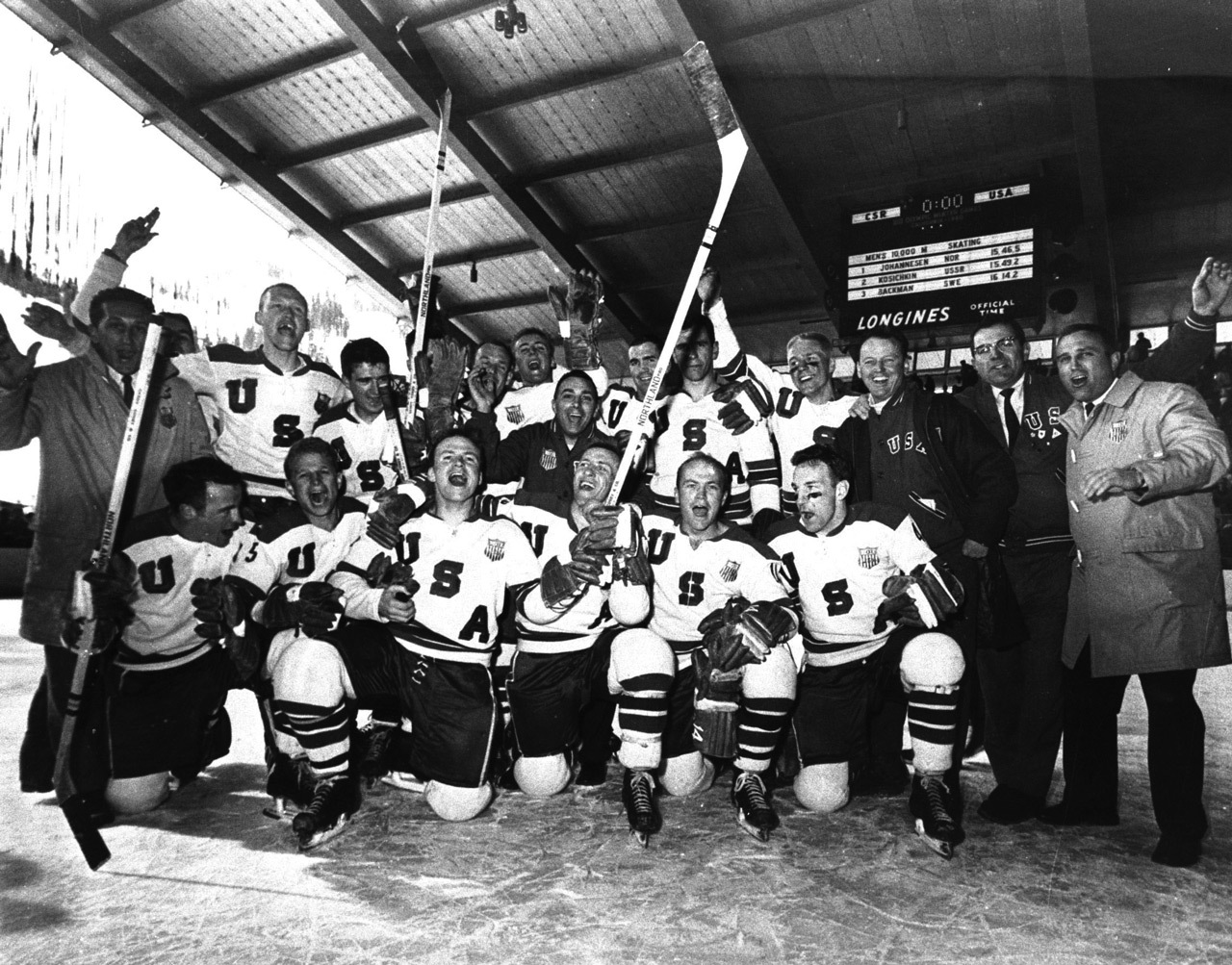
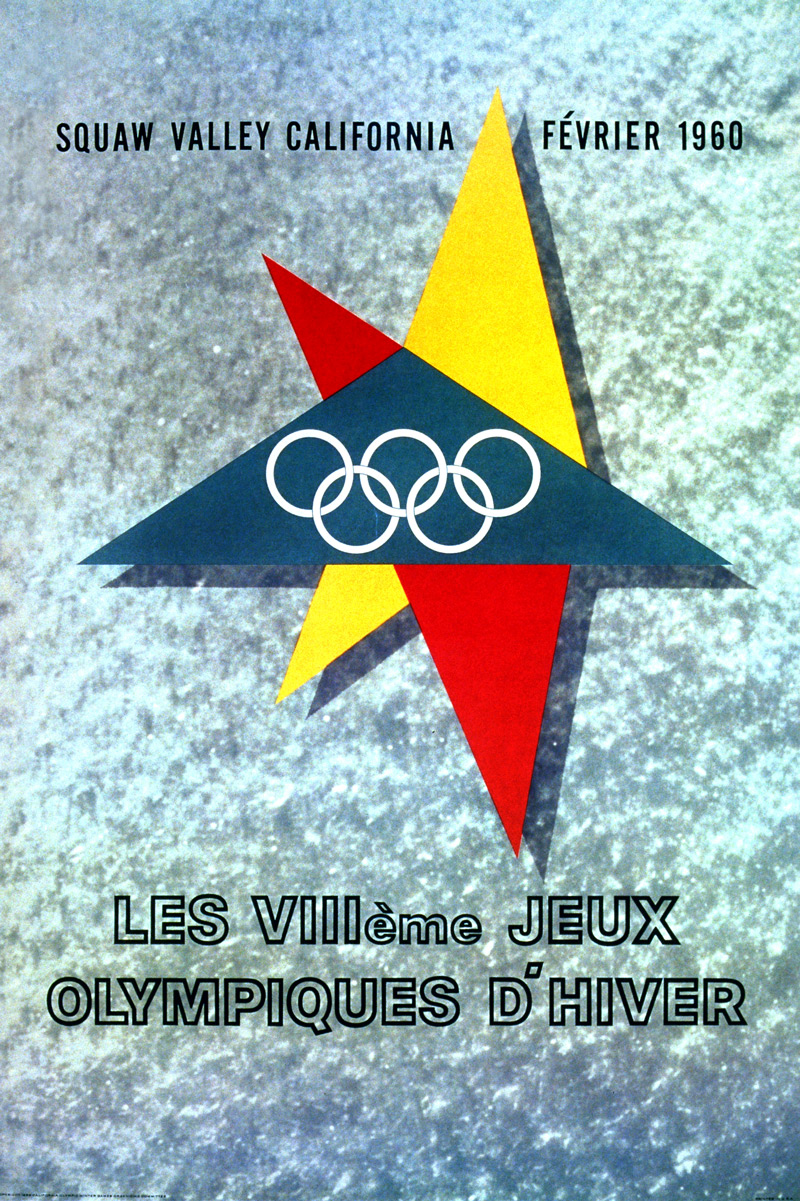
Team USA
Team Canada
Team USSR
It had been 28 years since the Winter Olympics were staged in the United States. The host nation had been gradually building towards an Olympic gold by bringing good teams to the recent World Championships and were quite open about their goal of winning at home in 1960.
Five players on the team had won silver medals in 1956, and 10 had had previous experience at the World Championships. Behind the outstanding goaltending of Jack McCartan, the Americans beat the Soviets 3‐2 and the Canadians 2‐1. McCartan blocked 39 shots against Canada, including 20 in the second period.

Team USA
Team Canada
Team USSR
The Americans victory over the USSR marked the first time a U.S. team had ever defeated the Soviets. The United States clinched the gold by humbling Czechoslovakia 9‐4 on the final day. In that game, the Americans fell behind 4‐3 after two periods but rallied to win with six unanswered goals in the third.
The Soviets settled for the bronze medal, their lowest finish in a major competition since their debut on the world stage in 1954.
| Rank | Country | Games | Wins | Losses | OT Losses | Points |
|---|---|---|---|---|---|---|
| 1 | USA | 7 | 7 | 0 | 0 | 14 |
| 2 | Canada | 7 | 6 | 1 | 0 | 12 |
| 3 | USSR | 7 | 4 | 2 | 1 | 9 |
| 4 | Czechoslovakia | 7 | 3 | 4 | 0 | 6 |
| 5 | Sweden | 7 | 2 | 4 | 1 | 5 |
| 6 | West Germany | 7 | 1 | 6 | 0 | 2 |
| 7 | Finland | 6 | 3 | 2 | 1 | 7 |
| 8 | Japan | 6 | 2 | 3 | 1 | 5 |
| 9 | Australia | 6 | 0 | 6 | 0 | 0 |
Chronology
| Description | Team | Score | Team | Score |
|---|---|---|---|---|
| Group A | Sweden | 2 | Canada | 5 |
| Group A | Japan | 1 | Canada | 19 |
| Group A | Japan | 0 | Sweden | 19 |
| Group B | West Germany | 0 | USSR | 8 |
| Group B | Finland | 4 | USSR | 8 |
| Group B | Finland | 1 | West Germany | 4 |
| Group C | Czechoslovakia | 5 | USA | 7 |
| Group C | Australia | 1 | Czechoslovakia | 18 |
| Group C | Australia | 1 | USA | 12 |
| 1st to 6th place | Czechoslovakia | 5 | USSR | 8 |
| 1st to 6th place | Sweden | 3 | USA | 6 |
| 1st to 6th place | West Germany | 0 | Canada | 12 |
| 1st to 6th place | West Germany | 1 | USA | 9 |
| 1st to 6th place | Sweden | 2 | USSR | 2 |
| 1st to 6th place | Czechoslovakia | 0 | Canada | 4 |
| 1st to 6th place | West Germany | 1 | USSR | 7 |
| Description | Team | Score | Team | Score |
|---|---|---|---|---|
| 1st to 6th place | Canada | 1 | USA | 2 |
| 1st to 6th place | Sweden | 1 | Czechoslovakia | 3 |
| 1st to 6th place | West Germany | 1 | Czechoslovakia | 9 |
| 1st to 6th place | USSR | 2 | USA | 3 |
| 1st to 6th place | Sweden | 5 | Canada | 6 |
| 1st to 6th place | West Germany | 2 | Sweden | 8 |
| 1st to 6th place | USSR | 5 | Canada | 8 |
| 1st to 6th place | Czechoslovakia | 4 | USA | 9 |
| 7th to 9th place | Finland | 14 | Australia | 1 |
| 7th to 9th place | Japan | 6 | Finland | 6 |
| 7th to 9th place | Japan | 13 | Australia | 2 |
| 7th to 9th place | Finland | 19 | Australia | 2 |
| 7th to 9th place | Japan | 2 | Finland | 11 |
| 7th to 9th place | Australia | 3 | Japan | 11 |
Statistical Leaders
Top 15 Total Point Leaders
| Player | Country | No. | GP | G | A | P | PIM |
|---|---|---|---|---|---|---|---|
| ETCHER, Fred | Canada | - | 7 | 9 | 12 | 21 | 0 |
| ATTERSLEY, Robert | Canada | - | 7 | 6 | 12 | 18 | 4 |
| CLEARY, Bill | USA | - | 7 | 7 | 7 | 14 | 0 |
| ALEXANDROV, Veniamin | USSR | - | 7 | 7 | 6 | 13 | 16 |
| CHRISTIAN, Bill | USA | - | 7 | 2 | 11 | 13 | 2 |
| KILPIO, Raimo | Finland | - | 6 | 9 | 3 | 12 | 2 |
| LUNDVALL, Lars-Erik | Sweden | - | 7 | 8 | 4 | 12 | 2 |
| SAMOLENKO, George | Canada | - | 7 | 8 | 4 | 12 | 0 |
| SEISTAMO, Jouni | Finland | - | 5 | 8 | 4 | 12 | 4 |
| MAYASICH, John | USA | - | 7 | 7 | 5 | 12 | 2 |
| NILSSON, Nils | Sweden | - | 7 | 7 | 5 | 12 | 4 |
| PANTUCEK, Vaclav | Czechoslovakia | - | 7 | 7 | 5 | 12 | 0 |
| MARTIN, Floyd | Canada | - | 7 | 6 | 6 | 12 | 14 |
| PETTERSSON, Ronald | Sweden | - | 7 | 4 | 8 | 12 | 2 |
| CHRISTIAN, Roger | USA | - | 7 | 8 | 3 | 11 | 4 |
Top 5 Goal Scorers
| Player | Country | No. | GP | G |
|---|---|---|---|---|
| ETCHER, Fred | Canada | - | 7 | 9 |
| KILPIO, Raimo | Finland | - | 6 | 9 |
| CHRISTIAN, Roger | USA | - | 7 | 8 |
| LUNDVALL, Lars-Erik | Sweden | - | 7 | 8 |
| SAMOLENKO, George | Canada | - | 7 | 8 |
Top 5 Assist Leaders
| Player | Country | No. | GP | A |
|---|---|---|---|---|
| ATTERSLEY, Robert | Canada | - | 7 | 12 |
| ETCHER, Fred | Canada | - | 7 | 12 |
| CHRISTIAN, Bill | USA | - | 7 | 11 |
| PETTERSSON, Ronald | Sweden | - | 7 | 8 |
| SEGAWA, Akiyoshi | Japan | - | 6 | 8 |
Top 10 Leading Goaltenders
| Player | Country | No. | GPT | GKD | GPI | MIP | MIP% | GA | SVS | SOG | SVS% | GAA | SO | W | T | L |
|---|---|---|---|---|---|---|---|---|---|---|---|---|---|---|---|---|
| YERKIN, Yevgeny | USSR | - | 3 | - | - | - | - | 4 | - | - | - | 1.71 | - | - | - | - |
| HEAD, Harold | Canada | - | 6 | - | - | 334 | - | 11 | - | - | - | 1.97 | - | - | - | - |
| MCCARTAN, Jack | USA | - | 7 | - | - | 413 | - | 17 | - | - | - | 2.47 | - | - | - | - |
| LAHTINEN, Juhani | Finland | - | 5 | - | - | 190 | - | 9 | - | - | - | 2.84 | - | - | - | - |
| HURLEY, Harold | Canada | - | 2 | - | - | 86 | - | 4 | - | - | - | 2.97 | - | - | - | - |
| LINDQVIST, Bengt | Sweden | - | 3 | - | - | 79 | - | 4 | - | - | - | 3.03 | - | - | - | - |
| SVENSSON, Kjell | Sweden | - | 6 | - | - | 341 | - | 20 | - | - | - | 3.52 | - | - | - | - |
| DVORACEK, null | Czechoslovakia | - | 2 | - | - | 49 | - | 3 | - | - | - | 3.67 | - | - | - | - |
| PUCHKOV, Nikolai | USSR | - | 5 | - | - | 280 | - | 19 | - | - | - | 4.07 | - | - | - | - |
| NADRCHAL, Vladimir | Czechoslovakia | - | 7 | - | - | 371 | - | 28 | - | - | - | 4.53 | - | - | - | - |
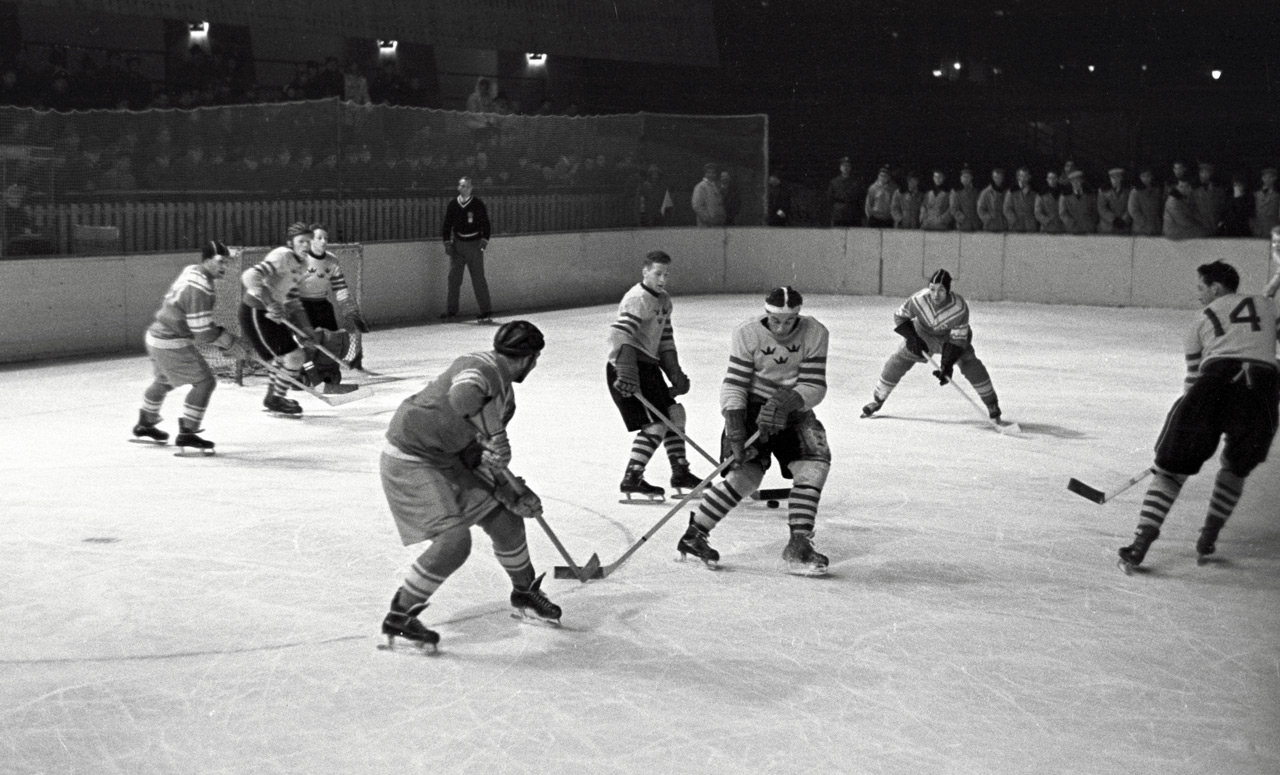
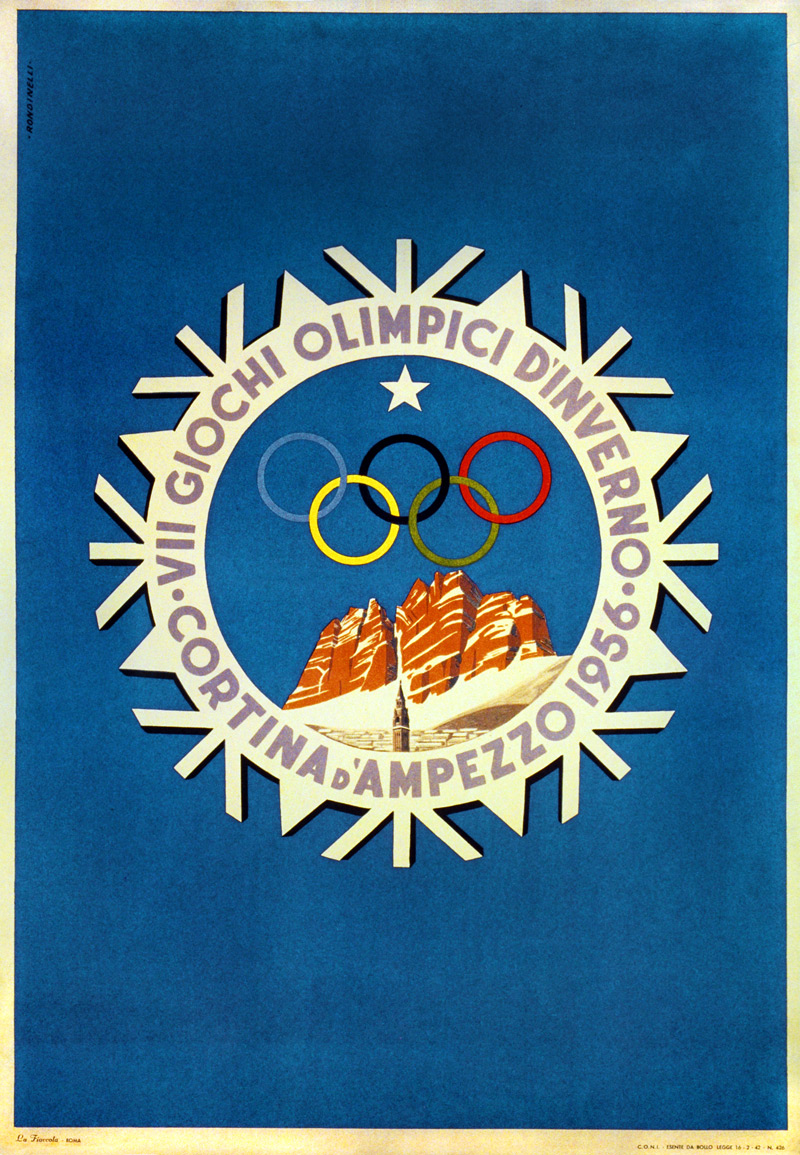
Team USSR
Team USA
Team Canada
IIHF President John “Bunny” Ahearne declared the 1956 Olympic tournament the most representative in history. A special four‐level Olympic Stadium was built at the Italian alpine resort to accommodate 12,000 spectators.
The organizers returned to the two‐stage formula and copied the format of the 1949 World Championships, with the two top teams from each of the three sub‐groups advancing to the round‐robin final, while the remaining teams played in the consolation group.

Team USSR
Team USA
Team Canada
The story of the tournament was the USSR who went a perfect 7‐0. “There is one area,” wrote the New York Times, “where the Russians have shown results bordering on the impossible and that area is ice hockey.&rdqo; This was written in the aftermath of the Soviet Union's gold medal capture in this, their first ever Winter Olympic appearance.
The Soviet's were led by netminder Nikolai Puchkov, who shut out the silver‐medalist Americans 4‐0 and bronze‐medal.
| Rank | Country | Games | Wins | Losses | OT Losses | Points |
|---|---|---|---|---|---|---|
| 1 | USSR | 7 | 7 | 0 | 0 | 14 |
| 2 | USA | 7 | 5 | 2 | 0 | 10 |
| 3 | Canada | 8 | 6 | 2 | 0 | 12 |
| 4 | Sweden | 7 | 2 | 4 | 1 | 5 |
| 5 | Czechoslovakia | 7 | 3 | 4 | 0 | 6 |
| 6 | West Germany | 8 | 1 | 5 | 2 | 4 |
| 7 | Italy | 6 | 3 | 1 | 2 | 8 |
| 8 | Poland | 5 | 2 | 3 | 0 | 4 |
| 9 | Switzerland | 5 | 1 | 4 | 0 | 2 |
| 10 | Austria | 6 | 0 | 5 | 1 | 1 |
Chronology
| Description | Team | Score | Team | Score |
|---|---|---|---|---|
| Group A | Italy | 2 | Austria | 2 |
| Group A | West Germany | 0 | Canada | 4 |
| Group A | Austria | 0 | Canada | 23 |
| Group A | Italy | 2 | West Germany | 2 |
| Group A | Italy | 1 | Canada | 3 |
| Group A | Austria | 0 | West Germany | 7 |
| Group B | USA | 3 | Czechoslovakia | 4 |
| Group B | Poland | 0 | USA | 4 |
| Group B | Poland | 3 | Czechoslovakia | 8 |
| Group C | Sweden | 1 | USSR | 5 |
| Group C | Switzerland | 5 | Sweden | 6 |
| Group C | Switzerland | 3 | USSR | 10 |
| 1st to 6th place | West Germany | 2 | USA | 7 |
| 1st to 6th place | Sweden | 1 | USSR | 4 |
| 1st to 6th place | Czechoslovakia | 3 | Canada | 6 |
| 1st to 6th place | Czechoslovakia | 0 | Sweden | 5 |
| 1st to 6th place | West Germany | 0 | USSR | 8 |
| 1st to 6th place | Canada | 1 | USA | 4 |
| 1st to 6th place | West Germany | 0 | Canada | 10 |
| Description | Team | Score | Team | Score |
|---|---|---|---|---|
| 1st to 6th place | Sweden | 1 | USA | 6 |
| 1st to 6th place | Czechoslovakia | 4 | USSR | 7 |
| 1st to 6th place | Sweden | 2 | Canada | 6 |
| 1st to 6th place | West Germany | 3 | Czechoslovakia | 9 |
| 1st to 6th place | USA | 0 | USSR | 4 |
| 1st to 6th place | West Germany | 1 | Sweden | 1 |
| 1st to 6th place | Czechoslovakia | 4 | USA | 9 |
| 1st to 6th place | Canada | 0 | USSR | 2 |
| 7th to 10th place | Austria | 4 | Switzerland | 7 |
| 7th to 10th place | Austria | 2 | Italy | 8 |
| 7th to 10th place | Switzerland | 2 | Poland | 6 |
| 7th to 10th place | Switzerland | 3 | Italy | 8 |
| 7th to 10th place | Austria | 3 | Poland | 4 |
| 7th to 10th place | Poland | 2 | Italy | 5 |
Statistical Leaders
Top 5 Goal Score Leaders
| Player | Country | No. | GP | G |
|---|---|---|---|---|
| THEBERGE, Gerry | Canada | - | 8 | 9 |
| BOBROV, Vsevolod | USSR | - | 7 | 9 |
| KNOX, Paul | Canada | - | 8 | 7 |
| LOGAN, James | Canada | - | 8 | 7 |
| MCKENZIE, Jack | Canada | - | 8 | 7 |
Top 5 Assist Leaders
| Player | Country | No. | GP | A |
|---|---|---|---|---|
| KNOX, Paul | Canada | - | 8 | - |
| AMBROS, Paul | West Germany | - | 8 | - |
| BECK, Martin | West Germany | - | 8 | - |
| EGEN, Markus | West Germany | - | 8 | - |
| ENDRESS, Artur | West Germany | - | 8 | - |
Top 10 Leading Goaltenders
| Player | Country | No. | GPT | GKD | GPI | MIP | MIP% | GA | SVS | SOG | SVS% | GAA | SO | W | T | L |
|---|---|---|---|---|---|---|---|---|---|---|---|---|---|---|---|---|
| WOODALL, Keith | Canada | - | 4 | - | - | - | - | 4 | - | - | - | 1.00 | - | - | - | - |
| PUCHKOV, Nikolai | USSR | - | 7 | - | - | 400 | - | 7 | - | - | - | 1.05 | - | - | - | - |
| RIGAZIO, Don | USA | - | 4 | - | - | 240 | - | 7 | - | - | - | 1.75 | - | - | - | - |
| BRODEUR, Denis | Canada | - | 4 | - | - | 240 | - | 8 | - | - | - | 2.00 | - | - | - | - |
| IKOLA, Willard | USA | - | 3 | - | - | 180 | - | 9 | - | - | - | 3.00 | - | - | - | - |
| MKRTYCHAN, Grigory | USSR | - | 1 | - | - | 20 | - | 2 | - | - | - | 6.00 | - | - | - | - |
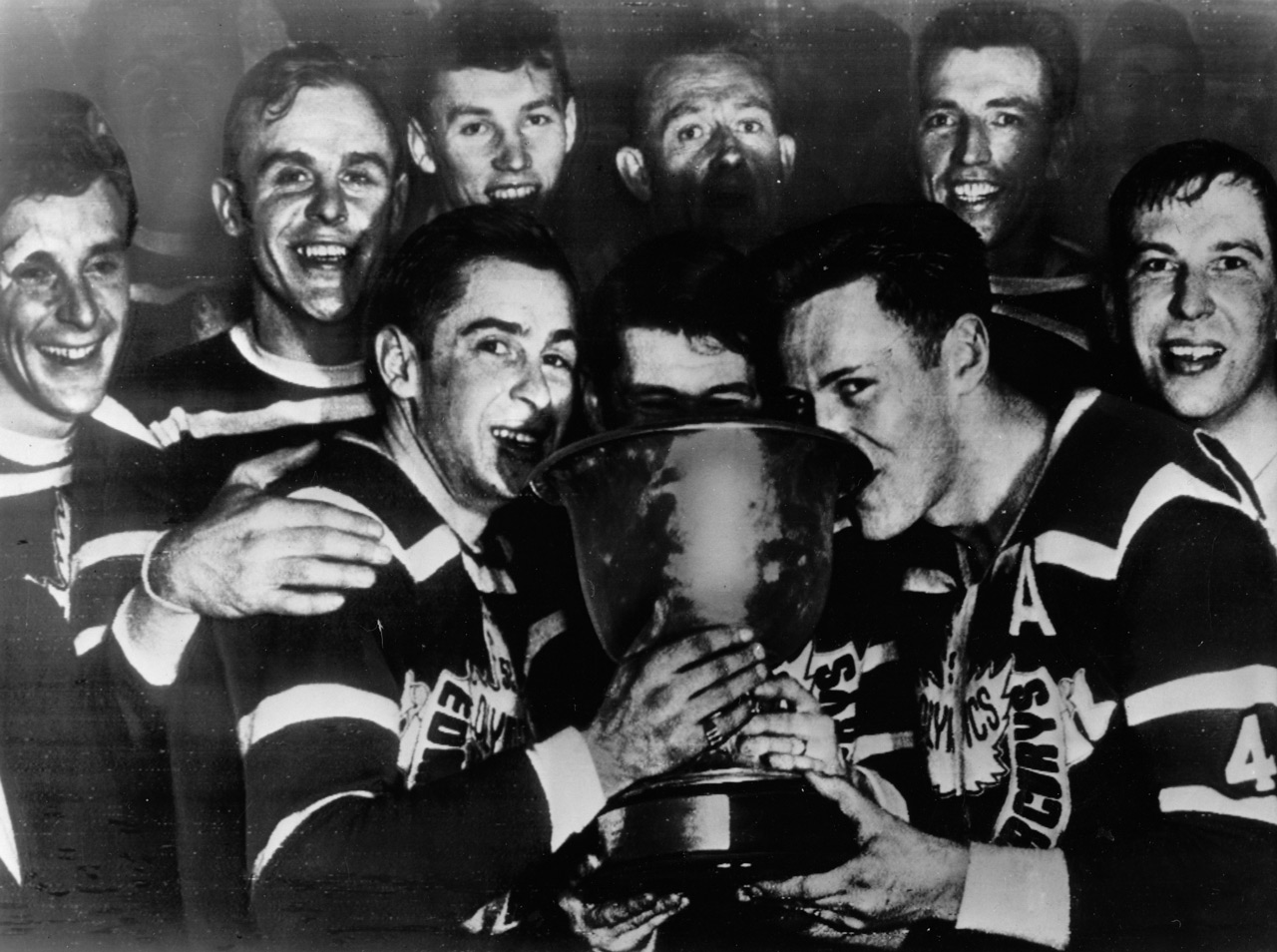
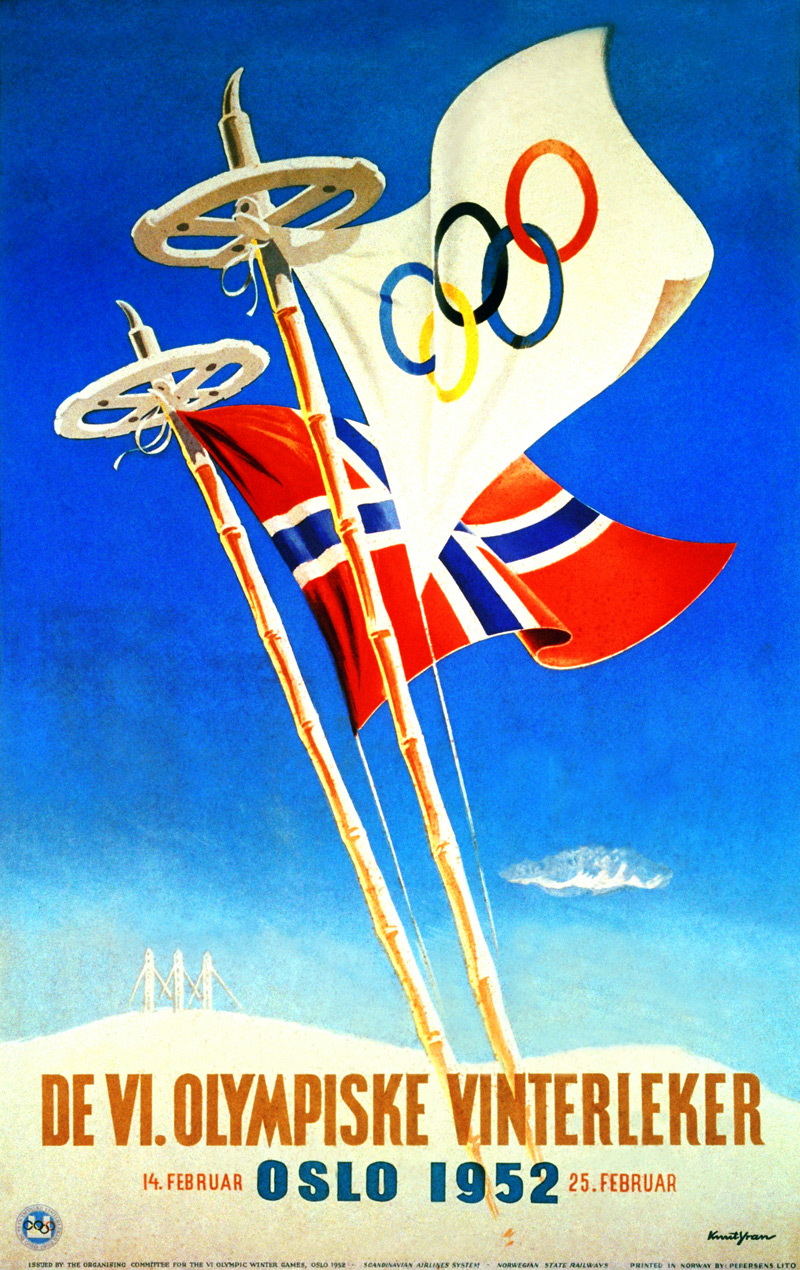
Team Canada
Team USA
Team Sweden
When the jubilant members of the Edmonton Mercurys accepted their Olympic gold medals at Oslo in 1952, little did they realize that no Canadian player would do the same for the remainder of that century. The Mercurys, who had won the gold medal at the 1950 World Championship in London, outscored their opponents 88‐5.
Only Sweden and the U.S. provided much opposition for Canada. The Mercurys needed a goal by captain Billy Dawe with 20 seconds remaining to beat the Swedes 3‐2. This proved to be the decisive victory in the tournament as Canada could only manage a 3‐3 tie with the Americans, despite out shooting them 58‐13. James Sedin earned the point for the U.S. by scoring with only two minutes and nine seconds left on the clock.
The Olympic gold medal in 1952 was the fifth for Canada, an achievement not to be surpassed until 1984 by the USSR. The United States won the silver medal with an impressive 6‐1‐1 record, losing only to Sweden 4‐2.

Team Canada
Team USA
Team Sweden
Czechoslovakia returned to international competition in 1952 and appeared to have won a bronze medal (and the European Championship) after a 4‐0 victory over Sweden in their final game ‐ giving them the same record and goals for and against differential as the Swedes.
Newspapers had already reported Czechoslovakia's third‐place finish when the organizing committee changed the European format and decided to hold an additional game to break the tie. Sweden then claimed the Olympic bronze medal and European title with a 5‐3 victory.
| Rank | Country | Games | Wins | Losses | OT Losses | Points |
|---|---|---|---|---|---|---|
| 1 | Canada | 8 | 7 | 0 | 1 | 15 |
| 2 | USA | 8 | 6 | 1 | 1 | 13 |
| 3 | Sweden | 9 | 7 | 2 | 0 | 14 |
| 4 | Czechoslovakia | 9 | 6 | 3 | 0 | 12 |
| 5 | Switzerland | 8 | 4 | 4 | 0 | 8 |
| 6 | Poland | 8 | 2 | 5 | 1 | 5 |
| 7 | Finland | 8 | 2 | 6 | 0 | 4 |
| 8 | West Germany | 8 | 1 | 6 | 1 | 3 |
| 9 | Norway | 8 | 0 | 8 | 0 | 0 |
Chronology
| Description | Team | Score | Team | Score |
|---|---|---|---|---|
| Norway | 2 | USA | 3 | |
| Finland | 2 | Sweden | 9 | |
| Poland | 2 | Czechoslovakia | 8 | |
| West Germany | 1 | Canada | 15 | |
| Finland | 0 | Switzerland | 12 | |
| Norway | 0 | Czechoslovakia | 6 | |
| West Germany | 2 | USA | 8 | |
| Poland | 1 | Sweden | 17 | |
| Norway | 2 | Sweden | 4 | |
| Poland | 3 | Switzerland | 6 | |
| Finland | 3 | Canada | 13 | |
| West Germany | 1 | Czechoslovakia | 6 | |
| Finland | 2 | USA | 8 | |
| Poland | 0 | Canada | 11 | |
| Norway | 2 | Switzerland | 7 | |
| West Germany | 3 | Sweden | 7 | |
| Czechoslovakia | 1 | Canada | 4 | |
| Switzerland | 2 | USA | 8 | |
| West Germany | 4 | Poland | 4 |
| Description | Team | Score | Team | Score |
|---|---|---|---|---|
| Norway | 2 | Finland | 5 | |
| USA | 2 | Sweden | 4 | |
| Switzerland | 2 | Canada | 11 | |
| Finland | 2 | Czechoslovakia | 11 | |
| Norway | 2 | West Germany | 6 | |
| West Germany | 1 | Finland | 5 | |
| Switzerland | 3 | Czechoslovakia | 8 | |
| Poland | 3 | USA | 5 | |
| Sweden | 2 | Canada | 3 | |
| Switzerland | 2 | Sweden | 5 | |
| Norway | 2 | Canada | 11 | |
| Finland | 2 | Poland | 4 | |
| Czechoslovakia | 3 | USA | 6 | |
| Sweden | 0 | Czechoslovakia | 4 | |
| West Germany | 3 | Switzerland | 6 | |
| Norway | 3 | Poland | 4 | |
| USA | 3 | Canada | 3 | |
| 3rd‐4th place | Czechoslovakia | 3 | Sweden | 5 |
Statistical Leaders
Top 5 Goal Score Leaders
| Player | Country | No. | GP | G |
|---|---|---|---|---|
| GIBSON, William | Canada | 13 | 8 | 12 |
| MILLER, David | Canada | 10 | 8 | 11 |
| POLTERA, Ulrich | Switzerland | 2 | 8 | 11 |
| TREPP, Hans-Martin | Switzerland | 14 | 8 | 11 |
| BLOMQVIST, Gote | Sweden | 6 | 9 | 9 |
Top 5 Assist Leaders
| Player | Country | No. | GP | A |
|---|---|---|---|---|
| ANDERSSON, Ake | Sweden | 2 | 9 | - |
| BLOMQVIST, Gote | Sweden | 6 | 9 | - |
| JOHANSSON, Gosta | Sweden | 7 | 9 | - |
| JOHANSSON, Rune | Sweden | 3 | 9 | - |
| JOHANSSON, Sven | Sweden | 13 | 9 | - |
Top 10 Leading Goaltenders
| Player | Country | No. | GPT | GKD | GPI | MIP | MIP% | GA | SVS | SOG | SVS% | GAA | SO | W | T | L |
|---|---|---|---|---|---|---|---|---|---|---|---|---|---|---|---|---|
| PATERSON, Eric | Canada | 1 | 5 | - | - | 280 | - | 7 | - | - | - | 1.50 | - | - | - | - |
| HANSCH, Ralph | Canada | 0 | 4 | - | - | 200 | - | 7 | - | - | - | 2.10 | - | - | - | - |
| SVENSSON, Lars | Sweden | - | 3 | - | - | 180 | - | 7 | - | - | - | 2.33 | - | - | - | - |
| FLODQVIST, Thord | Sweden | 1 | 6 | - | - | 360 | - | 15 | - | - | - | 2.50 | - | - | - | - |
| DESMOND, Dick | USA | 1 | 4 | - | - | 240 | - | 10 | - | - | - | 2.50 | - | - | - | - |
| WHISTON, Donald | USA | 0 | 4 | - | - | - | - | 11 | - | - | - | 2.75 | - | - | - | - |
| VODICKA, Jan | Czechoslovakia | - | 7 | - | - | - | - | 27 | - | - | - | 4.41 | - | - | - | - |
| HOFFMAN, Alfred | West Germany | - | 4 | - | - | 180 | - | 15 | - | - | - | 5.00 | - | - | - | - |
| CASSLIND, Yngve | Sweden | - | 2 | - | - | 120 | - | 10 | - | - | - | 5.00 | - | - | - | - |
| JANSEN, Uli | West Germany | - | 6 | - | - | 300 | - | 26 | - | - | - | 5.20 | - | - | - | - |
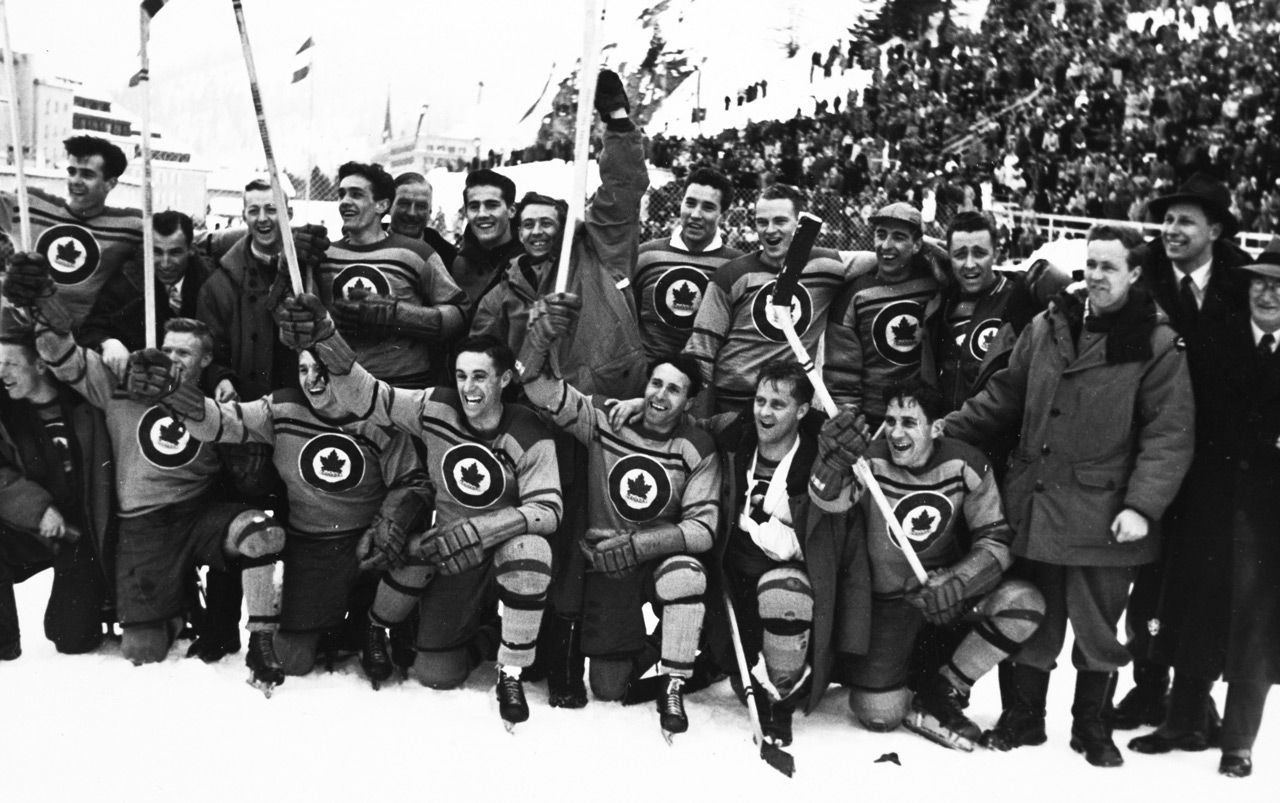
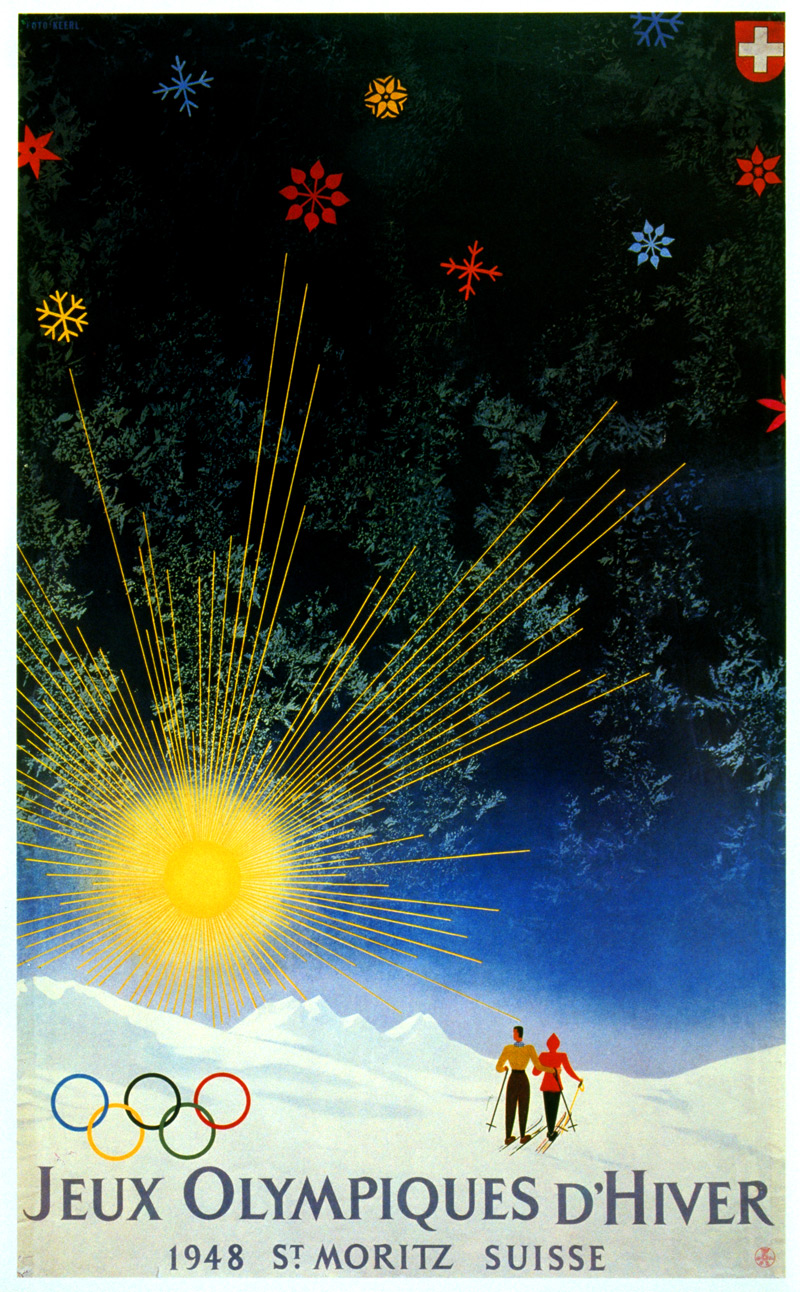
Team Canada
Team Czechoslovakia
Team Switzerland
Because of the Second World War, there had been a 12‐year break between Winter Olympic competitions. The Games at St. Moritz marked Canada's return to international competition for the first time since before the War.
The problems that had plagued the Americans at the 1947 World Championships produced grave complications in 1948, as two American teams arrived in Switzerland. One team was sent by the Amateur Hockey Association of the United States and was supported by the IIHF, while the other was sent by the Amateur Athletic Union, which had represented the United States at all previous Winter Games and now used its old connections to gain support from the International Olympic Committee.
Both American teams appeared on the ice for the opening ceremonies and police assistance was required to restore order. The IOC decided to disqualify both American teams, but passions later calmed and the AAU team left for home. This allowed the IOC to withdraw its suspension and reinstate the AHAUS team. In the end, the United States entry was “outlawed” by the IOC and was not counted in the final Olympic hockey standings (though it remained in the World Championships).

Team Canada
Team Czechoslovakia
Team Switzerland
Problems also plagued the Olympic tournament on the ice, where warm weather played havoc with the schedule and made it necessary to begin some games at 7 a.m. For the first time in history, a team went through an Olympic hockey tournament undefeated and failed to win the gold medal. The victim of the single round‐robin format was Czechoslovakia, which played to a scoreless tie with gold‐medalist Canada, represented by the Royal Canadian Air Force Flyers. The Czechoslovaks had to settle for a silver because the Canadians had a better goals for and against differential of plus‐64, compared to their plus‐62.
In essence, the gold medal was decided when Canada trounced the eventual fourth-place United States team 12‐3 and Czechoslovakia struggled to beat the Americans 4‐3. The star of the Canadian team was Wally Halder, who recorded 29 points on 21 goals and eight assists. Halder, a civilian who had been added to the team just 10 days before the team sailed for Europe, scored six times in what turned out to be the all‐important victory over the U.S.
For the first time in a championship in which Canada competed, the winner was not decided until the final game. The results proved that Czechoslovakia's World Championship in 1947 could not solely be attributed to Canada's absence. It was generally agreed that the Czechoslovak team was comparable to Canada's and boasted a much stronger offense. Czechoslovakia's captain Vladimir Zabrodsky, who scored 27 goals in the tournament, was recognized as the Olympics' best forward.
The bronze medal went to Switzerland, just as it had 20 years earlier when the Winter Olympics had also been staged in St. Moritz.
| Rank | Country | Games | Wins | Losses | OT Losses | Points |
|---|---|---|---|---|---|---|
| 1 | Canada | 8 | 7 | 0 | 1 | 15 |
| 2 | Czechoslovakia | 8 | 7 | 0 | 1 | 15 |
| 3 | Switzerland | 8 | 6 | 2 | 0 | 12 |
| 4 | USA | 8 | 5 | 3 | 0 | 10 |
| 5 | Sweden | 8 | 4 | 4 | 0 | 8 |
| 6 | Great Britain | 8 | 3 | 5 | 0 | 6 |
| 7 | Poland | 8 | 2 | 6 | 0 | 4 |
| 8 | Austria | 8 | 1 | 7 | 0 | 2 |
| 9 | Italy | 8 | 0 | 8 | 0 | 0 |
Chronology
| Team | Score | Team | Score |
|---|---|---|---|
| Czechoslovakia | 0 | Canada | 0 |
| Switzerland | 0 | Canada | 3 |
| USA | 3 | Canada | 12 |
| Sweden | 1 | Canada | 3 |
| Great Britain | 0 | Canada | 3 |
| Poland | 0 | Canada | 15 |
| Austria | 0 | Canada | 12 |
| Italy | 1 | Canada | 21 |
| Switzerland | 1 | Czechoslovakia | 7 |
| USA | 3 | Czechoslovakia | 4 |
| Sweden | 3 | Czechoslovakia | 6 |
| Great Britain | 4 | Czechoslovakia | 11 |
| Poland | 1 | Czechoslovakia | 13 |
| Austria | 3 | Czechoslovakia | 17 |
| Italy | 3 | Czechoslovakia | 22 |
| USA | 4 | Switzerland | 5 |
| Sweden | 2 | Switzerland | 8 |
| Great Britain | 3 | Switzerland | 12 |
| Poland | 0 | Switzerland | 14 |
| Austria | 2 | Switzerland | 11 |
| Italy | 0 | Switzerland | 16 |
| Team | Score | Team | Score |
|---|---|---|---|
| Sweden | 2 | USA | 5 |
| Great Britain | 3 | USA | 4 |
| Poland | 4 | USA | 23 |
| Austria | 2 | USA | 13 |
| Italy | 1 | USA | 31 |
| Great Britain | 3 | Sweden | 4 |
| Poland | 2 | Sweden | 13 |
| Austria | 1 | Sweden | 7 |
| Italy | 0 | Sweden | 23 |
| Poland | 2 | Great Britain | 7 |
| Austria | 4 | Great Britain | 5 |
| Italy | 7 | Great Britain | 14 |
| Austria | 5 | Poland | 7 |
| Italy | 7 | Poland | 13 |
| Italy | 5 | Austria | 16 |
Statistical Leaders
Top 15 Total Points Leaders
| Player | Country | No. | GP | G | A | P | PIM |
|---|---|---|---|---|---|---|---|
| HALDER, Wally | Canada | 6 | 8 | 21 | 8 | 29 | 20 |
| MARA, George | Canada | 8 | 8 | 17 | 9 | 26 | 6 |
| SCHROETER, Reg | Canada | 10 | 8 | 12 | 5 | 17 | 2 |
| RENAUD, Ab | Canada | 12 | 8 | 4 | 10 | 14 | 6 |
| GUZZO, Patrick | Canada | 17 | 8 | 5 | 7 | 12 | 8 |
| HIBBERD, Ted | Canada | 11 | 8 | 3 | 4 | 7 | 4 |
| LECOMPTE, Louis | Canada | 4 | 8 | 2 | 3 | 5 | 12 |
| GRAVELLE, Orval | Canada | 16 | 7 | 3 | 0 | 3 | 4 |
| DUNSTER, Bernie | Canada | 3 | 8 | 1 | 0 | 1 | 8 |
| TAYLOR, Irving | Canada | 7 | 1 | 0 | 0 | 0 | 0 |
Top 5 Goal Score Leaders
| Player | Country | No. | GP | G |
|---|---|---|---|---|
| HALDER, Wally | Canada | 6 | 8 | 21 |
| MARA, George | Canada | 8 | 8 | 17 |
| SCHROETER, Reg | Canada | 10 | 8 | 12 |
| LJUNGMAN, Lars | Sweden | - | 6 | 9 |
| ANDERSSON, Ake | Sweden | - | 8 | 8 |
Top 5 Assist Leaders
| Player | Country | No. | GP | A |
|---|---|---|---|---|
| RENAUD, Ab | Canada | 12 | 8 | 10 |
| MARA, George | Canada | 8 | 8 | 9 |
| HALDER, Wally | Canada | 6 | 8 | 8 |
| GUZZO, Patrick | Canada | 17 | 8 | 7 |
| SCHROETER, Reg | Canada | 10 | 8 | 5 |
Top 10 Leading Goaltenders
| Player | Country | No. | GPT | GKD | GPI | MIP | MIP% | GA | SVS | SOG | SVS% | GAA | SO | W | T | L |
|---|---|---|---|---|---|---|---|---|---|---|---|---|---|---|---|---|
| DOWEY, Murray | Canada | 1 | 8 | - | - | 480 | - | 5 | - | - | - | 0.62 | - | - | - | - |
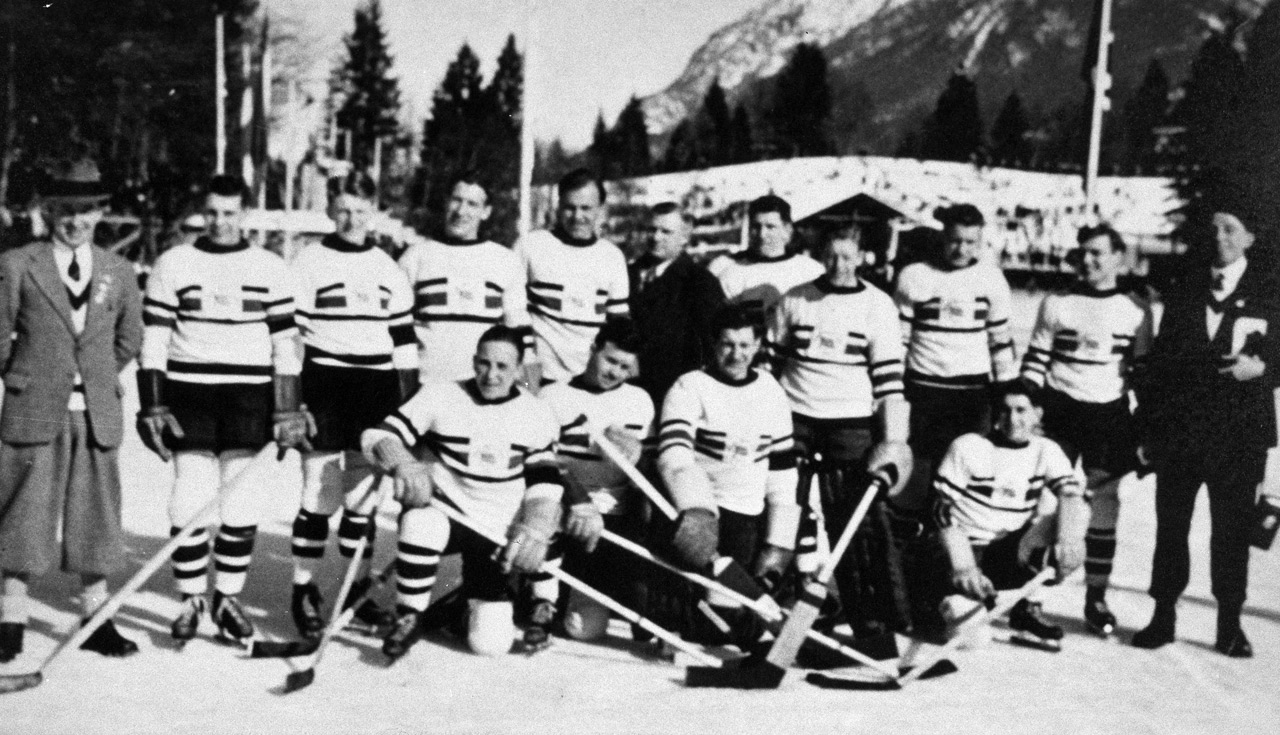
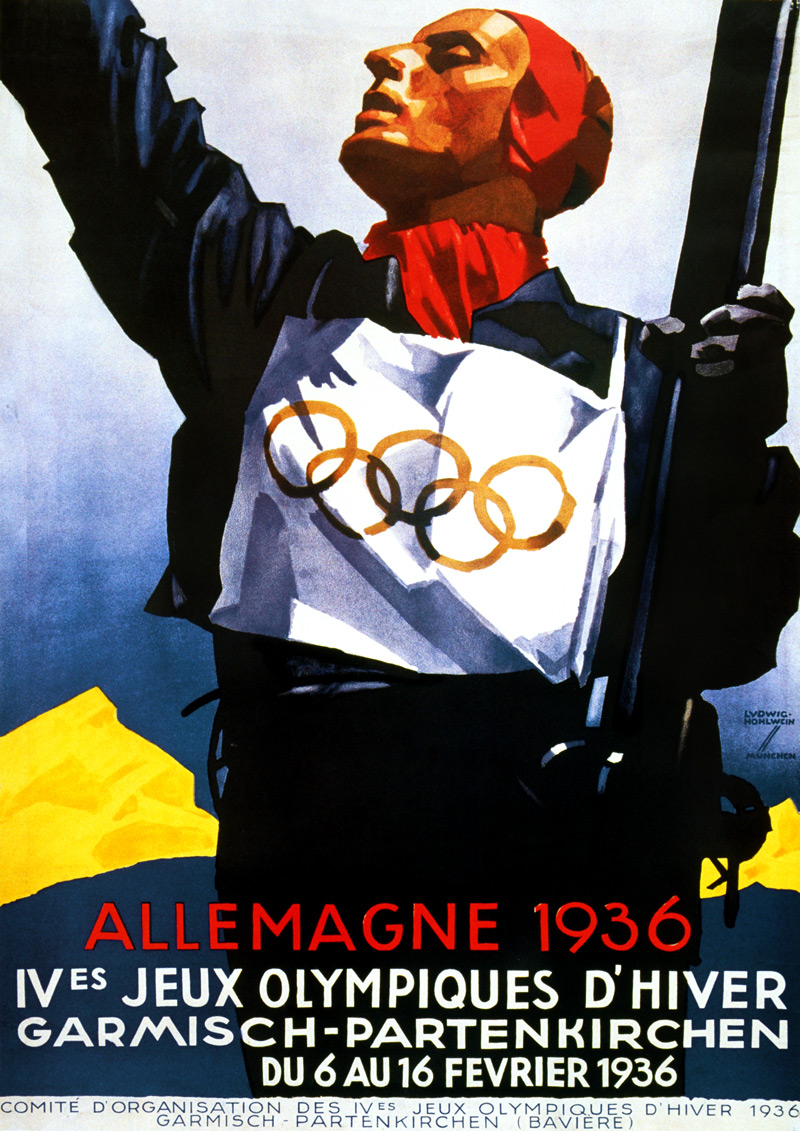
Team Great Britain
Team Canada
Team USA
Prior to the tournament the Canadian delegation argued for the disqualification of both France and Great Britain. Coached by future IIHF President John “Bunny” Ahearne, the British team featured only one player ‐ defenseman Carl Erhardt ‐ who was a true Englishman. All his teammates were of Canadian origin, as were the players who formed the core of the French team.
After long negotiations, Canada withdrew its protest against Great Britain but not against France. The French team was permitted to take part, but almost refused to do so in its anger over the Canadian protest. Great Britain went on to win its first and only Olympic gold medal in ice hockey largely based on a 2‐1 upset of Canada in the semi‐finals.
The 2‐1 overtime loss by the United States to Italy in the elimination round was the biggest upset of the tournament. Nevertheless, the Americans won the bronze medal and even held Great Britain to a scoreless tie on the final day.

Team Great Britain
Team Canada
Team USA
Teams from 15 countries participated, including Italy, Japan, and Latvia who were all making their Olympic debut. Japan's goaltender, Teiji Honma, wore a face mask for the first time in the history of Olympic play. Also for the first time, both the Canadians and Americans were defeated by European teams, as Canada had to settle for the silver medal.
The games were played outdoors on natural ice and snowstorms often forced the stoppage of play.
| Rank | Country | Games | Wins | Losses | OT Losses | Points |
|---|---|---|---|---|---|---|
| 1 | Great Britain | 7 | 5 | 0 | 2 | 12 |
| 2 | Canada | 8 | 7 | 1 | 0 | 14 |
| 3 | USA | 8 | 5 | 2 | 1 | 11 |
| 4 | Czechoslovakia | 8 | 5 | 3 | 0 | 10 |
| 5 | Germany | 6 | 3 | 2 | 1 | 7 |
| 6 | Sweden | 5 | 2 | 3 | 0 | 4 |
| 7 | Hungary | 6 | 2 | 4 | 0 | 4 |
| 8 | Austria | 6 | 2 | 4 | 0 | 4 |
| N/R | Belgium | 3 | 0 | 3 | 0 | 0 |
| N/R | France | 3 | 1 | 2 | 0 | 2 |
| N/R | Italy | 3 | 1 | 2 | 0 | 2 |
| N/R | Japan | 2 | 0 | 2 | 0 | 0 |
| N/R | Latvia | 3 | 0 | 3 | 0 | 0 |
| N/R | Poland | 3 | 1 | 2 | 0 | 2 |
| N/R | Switzerland | 3 | 1 | 2 | 0 | 2 |
Chronology
| Description | Team | Score | Team | Score |
|---|---|---|---|---|
| Group A | Austria | 2 | Canada | 5 |
| Group A | Poland | 1 | Canada | 8 |
| Group A | Latvia | 0 | Canada | 11 |
| Group A | Poland | 1 | Austria | 2 |
| Group A | Latvia | 1 | Austria | 7 |
| Group A | Latvia | 2 | Poland | 9 |
| Group B | USA | 1 | Germany | 0 |
| Group B | Italy | 0 | Germany | 3 |
| Group B | Switzerland | 0 | Germany | 2 |
| Group B | Italy | 2 | USA | 1 |
| Group B | Switzerland | 0 | USA | 3 |
| Group B | Switzerland | 1 | Italy | 0 |
| Group C | Hungary | 0 | Czechoslovakia | 3 |
| Group C | France | 0 | Czechoslovakia | 2 |
| Group C | Belgium | 0 | Czechoslovakia | 5 |
| Group C | France | 0 | Hungary | 3 |
| Group C | Belgium | 2 | Hungary | 11 |
| Group C | Belgium | 2 | France | 4 |
| Group D | Sweden | 0 | Great Britain | 1 |
| Group D | Japan | 0 | Great Britain | 3 |
| Group D | Japan | 0 | Sweden | 2 |
| Description | Team | Score | Team | Score |
|---|---|---|---|---|
| Semifinal Group A | Canada | 1 | Great Britain | 2 |
| Semifinal Group A | Germany | 1 | Great Britain | 1 |
| Semifinal Group A | Hungary | 1 | Great Britain | 5 |
| Semifinal Group A | Germany | 2 | Canada | 6 |
| Semifinal Group A | Hungary | 0 | Canada | 15 |
| Semifinal Group A | Hungary | 1 | Germany | 2 |
| Semifinal Group B | Czechoslovakia | 0 | USA | 2 |
| Semifinal Group B | Sweden | 1 | USA | 2 |
| Semifinal Group B | Austria | 0 | USA | 1 |
| Semifinal Group B | Sweden | 1 | Czechoslovakia | 4 |
| Semifinal Group B | Austria | 1 | Czechoslovakia | 2 |
| Semifinal Group B | Austria | 0 | Sweden | 1 |
| 1st to 4th place | USA | 0 | Great Britain | 0 |
| 1st to 4th place | Czechoslovakia | 0 | Great Britain | 5 |
| 1st to 4th place | USA | 0 | Canada | 1 |
| 1st to 4th place | Czechoslovakia | 0 | Canada | 7 |
Statistical Leaders
Top 5 Goal Score Leaders
| Player | Country | No. | GP | G |
|---|---|---|---|---|
| FARQUHARSON, Hugh | Canada | - | 8 | 10 |
| NEVILLE, David | Canada | - | 8 | 10 |
| FARMER-HORN, Kenneth | Canada | - | 8 | 8 |
| THOMSON, William | Canada | - | 8 | 8 |
| MIKLOS, Sandor | Hungary | - | 6 | 8 |
Top 5 Assist Leaders
| Player | Country | No. | GP | A |
|---|---|---|---|---|
| FARQUHARSON, Hugh | Canada | - | 8 | - |
| FARMER-HORN, Kenneth | Canada | - | 8 | - |
| JIROTKA, Drahos | Czechoslovakia | - | 8 | - |
| KUCERA, Oldrich | Czechoslovakia | - | 8 | - |
| MALECEK, Josef | Czechoslovakia | - | 8 | - |
Top 10 Leading Goaltenders
| Player | Country | No. | GPT | GKD | GPI | MIP | MIP% | GA | SVS | SOG | SVS% | GAA | SO | W | T | L |
|---|---|---|---|---|---|---|---|---|---|---|---|---|---|---|---|---|
| CARLSSON, Herman | Sweden | - | 3 | - | - | 180 | - | 1 | - | - | - | 0.33 | - | - | - | - |
| FOSTER, James | Great Britain | - | 7 | - | - | 510 | - | 3 | - | - | - | 0.35 | - | - | - | - |
| MOONE, Thomas | USA | - | 7 | - | - | 500 | - | 4 | - | - | - | 0.48 | - | - | - | - |
| MOORE, Francis | Canada | - | 3 | - | - | 180 | - | 2 | - | - | - | 0.67 | - | - | - | - |
| MILTON, Raymond | Canada | - | 5 | - | - | 300 | - | 5 | - | - | - | 1.00 | - | - | - | - |
| EGGINGER, Wilhelm | Germany | - | 6 | - | - | 360 | - | 9 | - | - | - | 1.50 | - | - | - | - |
| GEROSA, Augusto | Italy | - | 3 | - | - | 200 | - | 5 | - | - | - | 1.50 | - | - | - | - |
| MORISSON, Jacques | France | - | 1 | - | - | 80 | - | 2 | - | - | - | 1.50 | - | - | - | - |
| WEISS, Hermann | Austria | - | 6 | - | - | - | - | 11 | - | - | - | 1.83 | - | - | - | - |
| PRZEZDIECKI, Henryk | Poland | - | 1 | - | - | 60 | - | 2 | - | - | - | 2.00 | - | - | - | - |
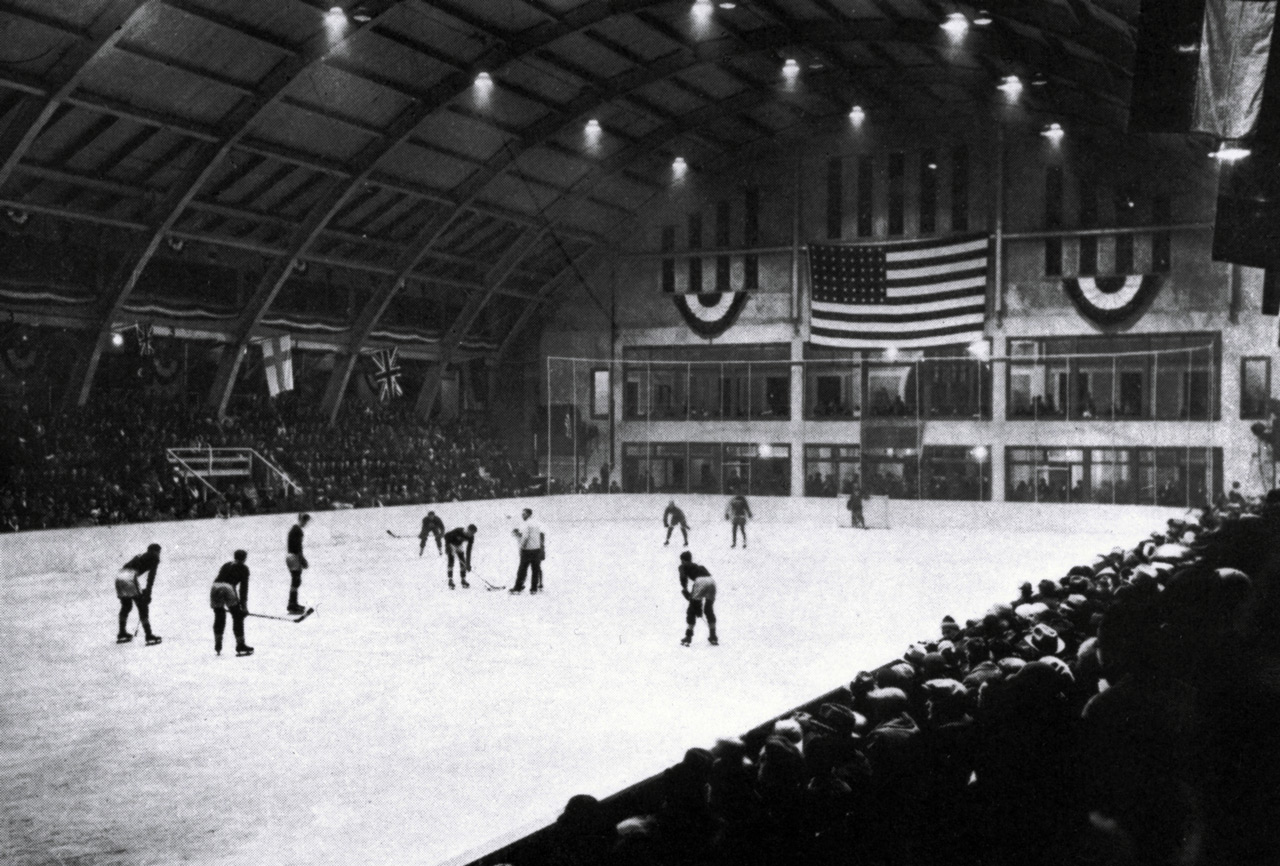
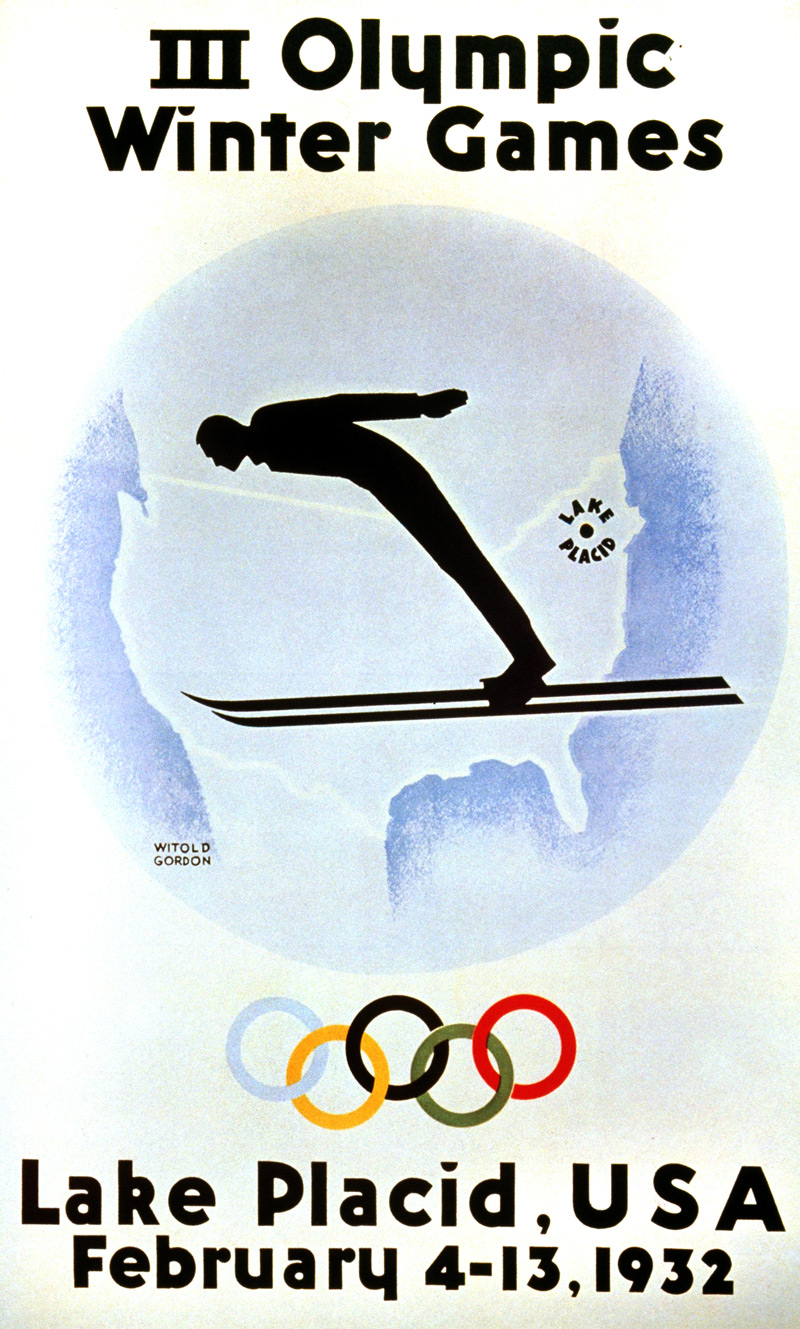
Team Canada
Team USA
Team Germany
Many countries applied to participate in '32 Games, but the economics of the Great Depression prevented many national teams from traveling overseas. As a result, this four‐nation hockey tournament would be the smallest field in Olympic history.
Poland was the only nation to finish without a medal. An indoor and outdoor rink was used, which forced the players to keep adjusting from artificial to natural ice.
It was decided that the four teams would compete in a double round-robin, meaning each team would face its opponents twice. In addition to those 12 games, the IOC ruled that five exhibition games would be played on the days in which no official matches were scheduled. Among the participants in the exhibition games was Montreal's McGill University.

Team Canada
Team USA
Team Germany
Canada and the United States were evenly matched and well ahead of their European opponents. Overtime was required in the first meeting between the two rivals, with Canada's Victor Lindqvist providing the winning goal in a 2‐1 victory. However the U.S. still had a chance at the gold medal when they met Canada on the final day of the tournament.
Going into the game, Canada had a 5‐0 record compared to the US's 4‐1 mark. A win by the U.S. would force another game to be played to decide top spot. The hosts led 2‐1 after two periods, but Canada, represented by the Winnipeg Hockey Club, forced the game into overtime on a third‐period goal by left winger Romeo Rivers. After three 10‐minute overtime periods it was still 2-2 and Canada captured the gold medal.
Interest was such that 7,000 fans jammed a rink containing only 3,000 seats.
| Rank | Country | Games | Wins | Losses | OT Losses | Points |
|---|---|---|---|---|---|---|
| 1 | Canada | 6 | 5 | 0 | 1 | 11 |
| 2 | USA | 6 | 4 | 1 | 1 | 9 |
| 3 | Germany | 6 | 2 | 4 | 0 | 4 |
| 4 | Poland | 6 | 0 | 6 | 0 | 0 |
Chronology
| Description | Team | Score | Team | Score |
|---|---|---|---|---|
| Preliminary Round | USA | 1 | Canada | 2 |
| Preliminary Round | Germany | 1 | Canada | 4 |
| Preliminary Round | Poland | 0 | Canada | 9 |
| Preliminary Round | Germany | 0 | USA | 7 |
| Preliminary Round | Poland | 1 | USA | 4 |
| Preliminary Round | Poland | 1 | Germany | 2 |
| Description | Team | Score | Team | Score |
|---|---|---|---|---|
| 1st to 4th place | USA | 2 | Canada | 2 |
| 1st to 4th place | Germany | 0 | Canada | 5 |
| 1st to 4th place | Germany | 0 | USA | 8 |
| 1st to 4th place | Poland | 0 | Canada | 10 |
| 1st to 4th place | Poland | 0 | USA | 5 |
| 1st to 4th place | Poland | 1 | Germany | 4 |
Statistical Leaders
Top 5 Goal Score Leaders
| Player | Country | No. | GP | G |
|---|---|---|---|---|
| MONSON, Walter | Canada | - | 6 | 7 |
| PALMER, Winthrop | USA | - | 6 | 7 |
| SIMPSON, Harold | Canada | - | 5 | 6 |
| CHASE, John | USA | - | 6 | 5 |
| RIVERS, Romeo | Canada | - | 6 | 5 |
Top 5 Assist Leaders
| Player | Country | No. | GP | A |
|---|---|---|---|---|
| ANDERSON, Osborn | USA | - | 6 | - |
| BALL, Rudolf | Germany | - | 6 | - |
| BENT, John | USA | - | 6 | - |
| CHASE, John | USA | - | 6 | - |
| GARRISON, John | USA | - | 6 | - |
Top 10 Leading Goaltenders
| Player | Country | No. | GPT | GKD | GPI | MIP | MIP% | GA | SVS | SOG | SVS% | GAA | SO | W | T | L |
|---|---|---|---|---|---|---|---|---|---|---|---|---|---|---|---|---|
| COCKBURN, William | Canada | - | 5 | - | - | 300 | - | 4 | - | - | - | 0.80 | - | - | - | - |
| FARREL, Franklin | USA | - | 6 | - | - | 360 | - | 5 | - | - | - | 0.83 | - | - | - | - |
| LEINWEBER, Walter | Germany | - | 6 | - | - | 360 | - | 26 | - | - | - | 4.33 | - | - | - | - |
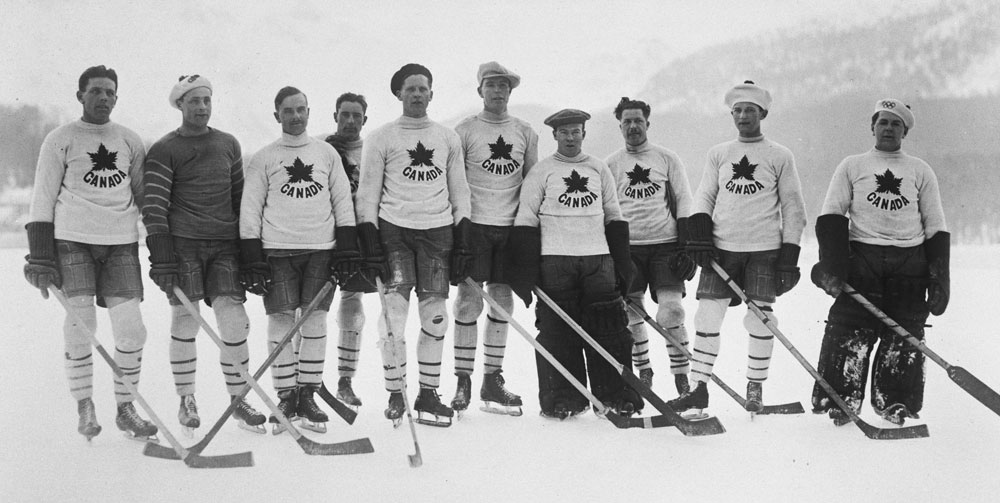
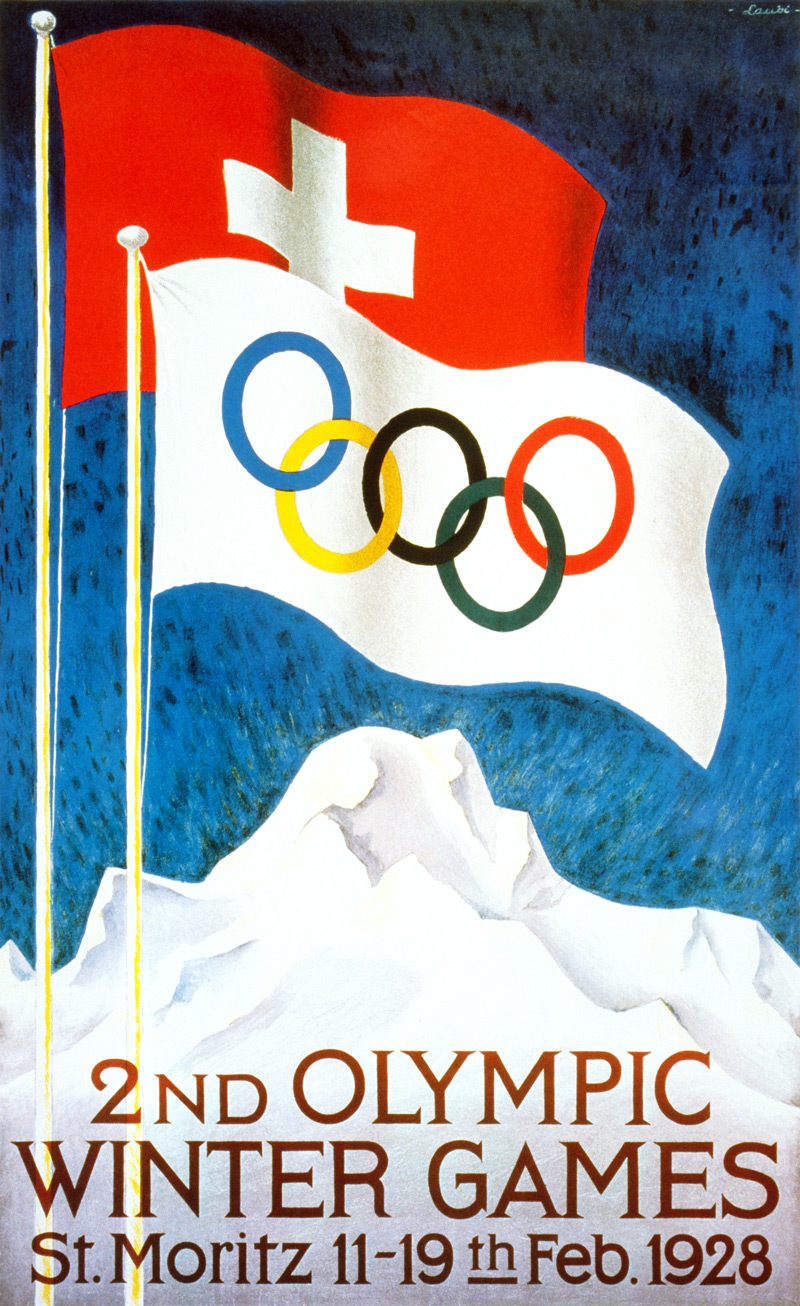
Team Canada
Team Sweden
Team Switzerland
Canada's representative, the Toronto Varsity Grads, arrived in Europe 10 days before the opening of the 1928 Olympic games. Tournament officials, after watching the team practice, concluded that Canada was in a class of its own (the United States did not compete) and would be given a bye to the tournament's final round.
The European teams were split into three divisions, with the winner of each group advancing to the medal round. Games were much closer than at previous Olympic tournaments, as warm weather often turned the natural ice surface to slush and thus reduced the advantage for strong skating teams.
Sweden and Switzerland had both posted two wins and a tie in winning their preliminary round groups. Great Britain, on the other hand, lost 3‐2 to France and finished in a three‐way tie with France and Belgium in the four‐team group. The British advanced because they had the best goals for and against differential.

Team Canada
Team Sweden
Team Switzerland
In the medal round, Canada handily defeated Sweden 11‐0, Great Britain 14‐0 and Switzerland 13‐0 on route to the gold medal. Among the stars for Canada were Hugh Plaxton and Dave Trottier, who each scored 12 goals in three games.
At the time, the 1928 tournament contested only the Olympic Championship, but two years later the IIHF Congress awarded it the status of both the World and European Championships, thus making it the first tournament to contest three championship titles.
| Rank | Country | Games | Wins | Losses | OT Losses | Points |
|---|---|---|---|---|---|---|
| 1 | Canada | 3 | 3 | 0 | 0 | 6 |
| 2 | Sweden | 5 | 3 | 1 | 1 | 7 |
| 3 | Switzerland | 5 | 2 | 2 | 1 | 5 |
| 4 | Great Britain | 6 | 2 | 4 | 0 | 4 |
| N/R | Austria | 2 | 0 | 0 | 2 | 2 |
| N/R | Belgium | 3 | 2 | 1 | 0 | 4 |
| N/R | Czechoslovakia | 2 | 1 | 1 | 0 | 2 |
| N/R | France | 3 | 2 | 1 | 0 | 4 |
| N/R | Germany | 2 | 0 | 1 | 1 | 1 |
| N/R | Hungary | 3 | 0 | 3 | 0 | 0 |
| N/R | Poland | 2 | 0 | 1 | 1 | 1 |
Chronology
| Description | Team | Score | Team | Score |
|---|---|---|---|---|
| Group A | France | 3 | Great Britain | 2 |
| Group A | Belgium | 3 | Great Britain | 7 |
| Group A | Hungary | 0 | Great Britain | 1 |
| Group A | Belgium | 3 | France | 1 |
| Group A | Hungary | 0 | France | 2 |
| Group A | Hungary | 2 | Belgium | 3 |
| Group B | Czechoslovakia | 0 | Sweden | 3 |
| Group B | Poland | 2 | Sweden | 2 |
| Group B | Poland | 2 | Czechoslovakia | 3 |
| Group C | Austria | 4 | Switzerland | 4 |
| Group C | Germany | 0 | Switzerland | 1 |
| Group C | Germany | 0 | Austria | 0 |
| Description | Team | Score | Team | Score |
|---|---|---|---|---|
| 1st to 4th place | Sweden | 0 | Canada | 11 |
| 1st to 4th place | Switzerland | 0 | Canada | 13 |
| 1st to 4th place | Great Britain | 0 | Canada | 14 |
| 1st to 4th place | Switzerland | 0 | Sweden | 4 |
| 1st to 4th place | Great Britain | 1 | Sweden | 3 |
| 1st to 4th place | Great Britain | 0 | Switzerland | 4 |
Statistical Leaders
Top 5 Goal Score Leaders
| Player | Country | No. | GP | G |
|---|---|---|---|---|
| PLAXTON, Hugh | Canada | - | 3 | 12 |
| TROTTIER, Dave | Canada | - | 3 | 12 |
| JOHANSSON, Gustaf | Sweden | - | 5 | 5 |
| HOLMQVIST, Birger | Sweden | - | 5 | 4 |
| HUDSON, Lou | Canada | - | 3 | 4 |
Top 5 Assist Leaders
| Player | Country | No. | GP | A |
|---|---|---|---|---|
| ABRAHAMSSON, Carl | Sweden | - | 5 | - |
| BERGMAN, Emil | Sweden | - | 5 | - |
| HOLMQVIST, Birger | Sweden | - | 5 | - |
| JOHANSSON, Gustaf | Sweden | - | 5 | - |
| JOHANSSON, Henry | Sweden | - | 5 | - |
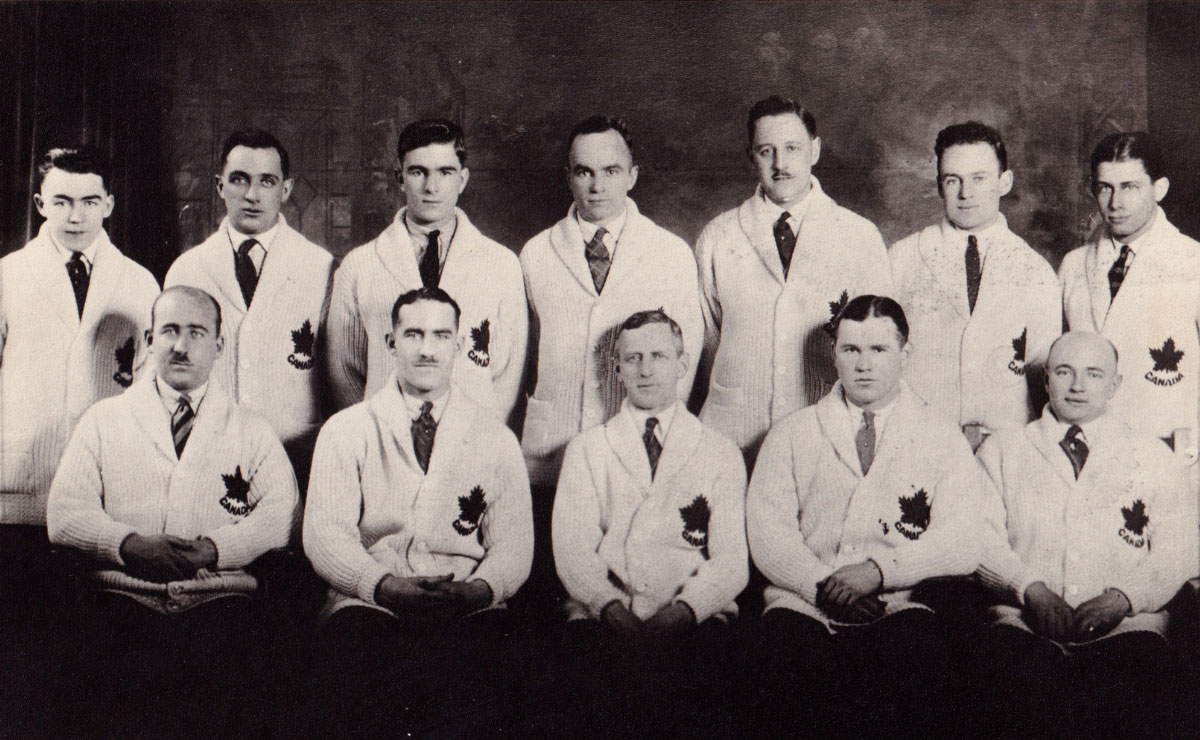
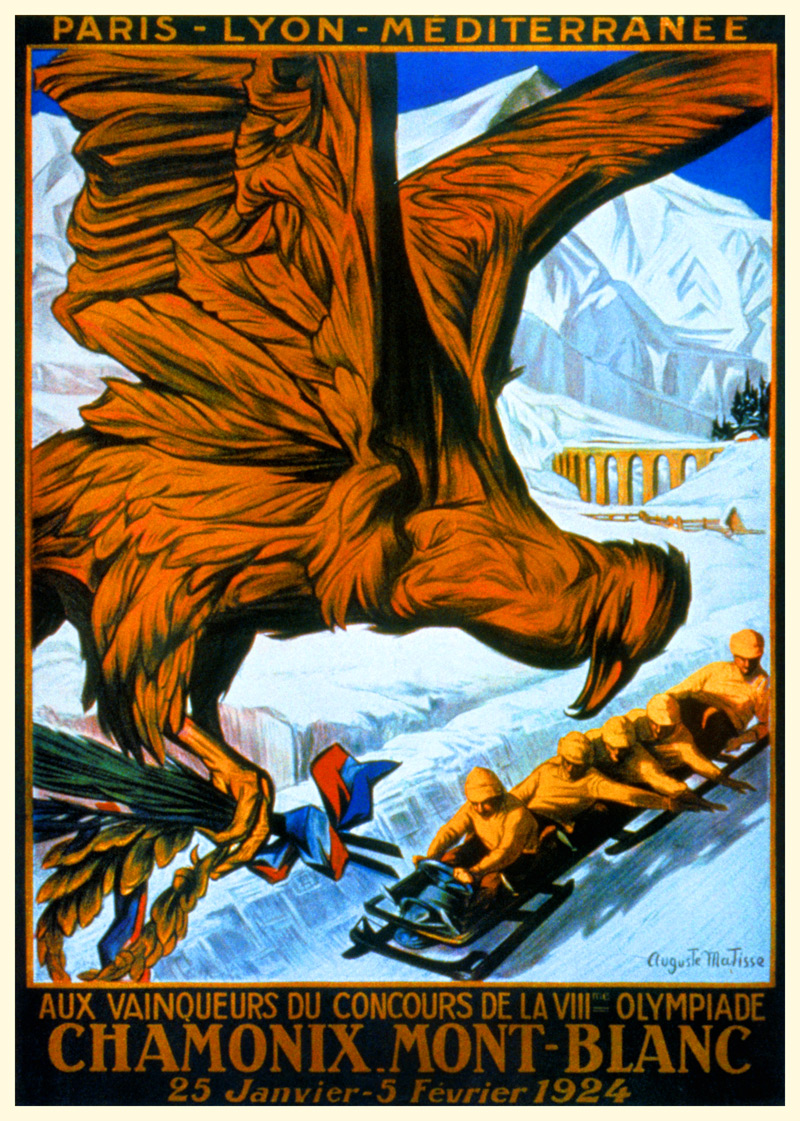
Team Canada
Team USA
Team Great Britain
The competition was played according to new rules that divided the game into three 20‐minute periods.
Matches were held in late January and early February during the International Week of Winter Sport that one year later was to be called the Winter Olympic Games by the Congress of the International Olympic Committee.
The tournament was split into two groups with four teams in each. The top two ranking teams from each group went on to the playoff round.
The four years between this championship and the 1920 games in Antwerp did nothing to alter the balance of power between North America and Europe. Canada, represented by the Toronto Granites, earned the gold medal and established a record that has never been beaten by scoring 110 goals in five games.

Team Canada
Team USA
Team Great Britain
Included in this total was an Olympic record 33‐0 win over Switzerland that featured 18 goals in the first period. The United States was almost as dominant, sweeping its European opponents before dropping a 6‐1 decision to Canada in what turned out to be the gold medal game.
In that match, left winger Harry Watson, who was hired by The Toronto Telegram to supply reports from Chamonix, staked Canada to 2‐0 lead before the 10-minute mark of the first period and finished the game with a hat trick.
Overall, a total of 255 goals were scored in the 16 games of the tournament ‐ an average of almost 16 goals per game.
| Rank | Country | Games | Wins | Losses | OT Losses | Points |
|---|---|---|---|---|---|---|
| 1 | Canada | 5 | 5 | 0 | 0 | 10 |
| 2 | USA | 5 | 4 | 1 | 0 | 8 |
| 3 | Great Britain | 5 | 3 | 2 | 0 | 6 |
| 4 | Sweden | 5 | 2 | 3 | 0 | 4 |
| N/R | Belgium | 3 | 0 | 3 | 0 | 0 |
| N/R | Czechoslovakia | 3 | 1 | 2 | 0 | 2 |
| N/R | France | 3 | 1 | 2 | 0 | 2 |
| N/R | Switzerland | 3 | 0 | 3 | 0 | 0 |
Chronology
| Description | Team | Score | Team | Score |
|---|---|---|---|---|
| Group A | Sweden | 0 | Canada | 22 |
| Group A | Czechoslovakia | 0 | Canada | 30 |
| Group A | Switzerland | 0 | Canada | 33 |
| Group A | Czechoslovakia | 3 | Sweden | 9 |
| Group A | Switzerland | 0 | Sweden | 9 |
| Group A | Switzerland | 2 | Czechoslovakia | 11 |
| Group B | Great Britain | 0 | USA | 11 |
| Group B | France | 0 | USA | 22 |
| Group B | Belgium | 0 | USA | 19 |
| Group B | France | 2 | Great Britain | 15 |
| Group B | Belgium | 3 | Great Britain | 19 |
| Group B | Belgium | 5 | France | 7 |
| Description | Team | Score | Team | Score |
|---|---|---|---|---|
| 1st to 4th place | USA | 1 | Canada | 6 |
| 1st to 4th place | Great Britain | 2 | Canada | 19 |
| 1st to 4th place | Sweden | 0 | USA | 20 |
| 1st to 4th place | Sweden | 3 | Great Britain | 4 |
Statistical Leaders
Top 5 Goal Score Leaders
| Player | Country | No. | GP | G |
|---|---|---|---|---|
| WATSON, Harry | Canada | - | 5 | 36 |
| MCCAFFERY, Bert | Canada | - | 5 | 20 |
| SMITH, Hooley | Canada | - | 5 | 18 |
| SMITH, Reginald | Canada | - | 5 | 18 |
| MUNRO, Dunc | Canada | - | 5 | 16 |
Top 10 Leading Goaltenders
| Player | Country | No. | GPT | GKD | GPI | MIP | MIP% | GA | SVS | SOG | SVS% | GAA | SO | W | T | L |
|---|---|---|---|---|---|---|---|---|---|---|---|---|---|---|---|---|
| CAMERON, Jack | Canada | - | 3 | - | - | 150 | - | 1 | - | - | - | 0.40 | - | - | - | - |
| COLLETT, Ernie | Canada | - | 2 | - | - | 90 | - | 2 | - | - | - | 1.33 | - | - | - | - |
| OLSSON, Einar | Sweden | - | 4 | - | - | 230 | - | 24 | - | - | - | 6.26 | - | - | - | - |
| JOSEFSSON, Carl | Sweden | - | 2 | - | - | 70 | - | 25 | - | - | - | 21.43 | - | - | - | - |
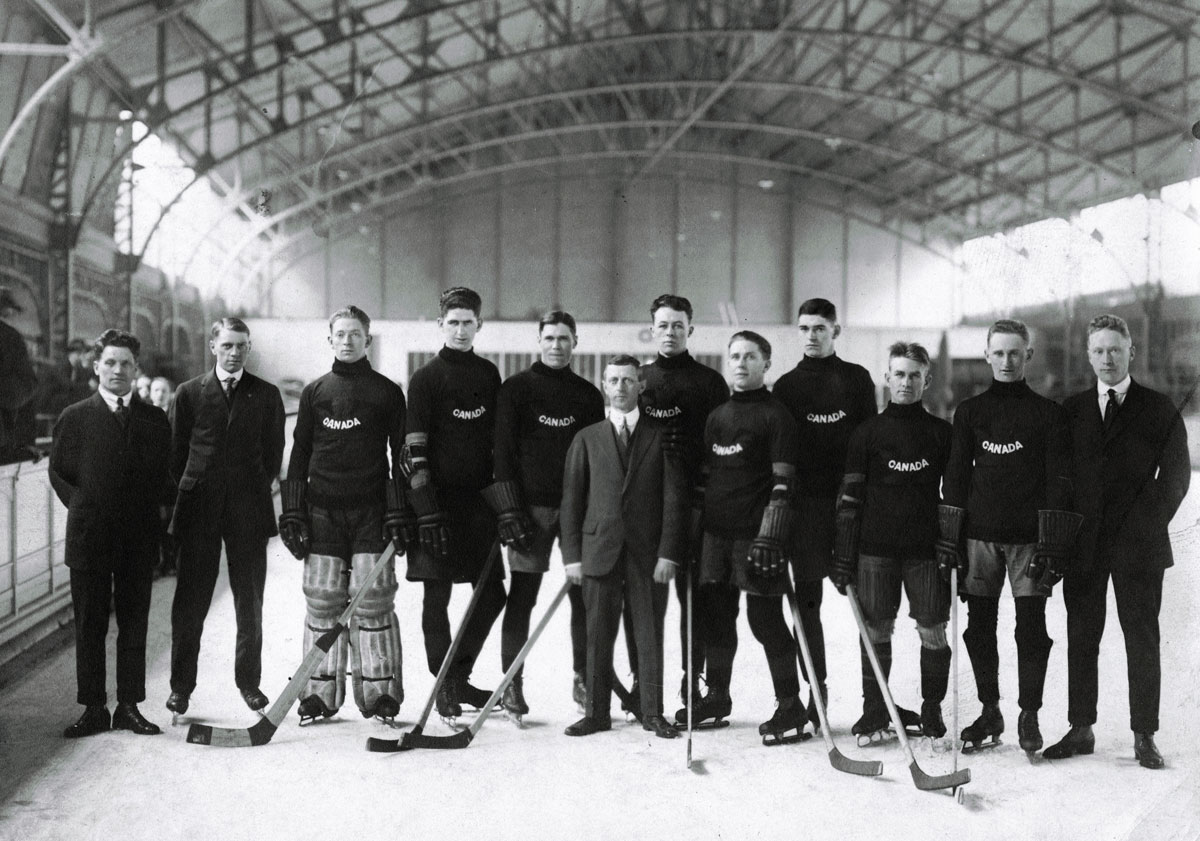
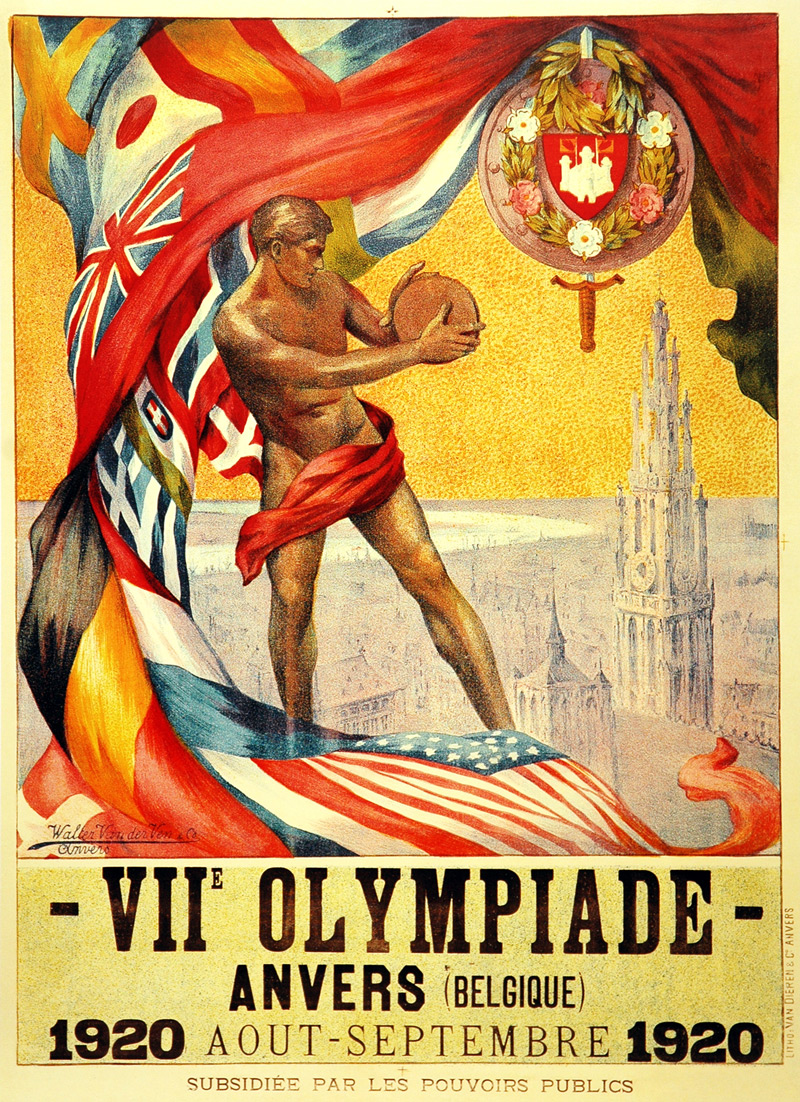
Team Canada
Team USA
Team Czechoslovakia
Hockey was included for the first time at the 1920 Antwerp Summer Games.
The Congress of the IIHF used the occasion of this tournament to admit Canada and the United States into its membership. The participation of teams from Canada and the U.S. helped to adjust the rules of both the IIHF and the Canadian game. Teams played six players per side, the rover having been dropped at the IIHF Congress in March of 1912, and players could only be changed when the action was stopped.
The 1920 tournament was played on a rink that was different in size from that prescribed by the IIHF rules. Seven nations were represented, but the first face‐to‐face confrontation of hockey players from the old and new worlds showed the overwhelming superiority of experienced North American players.
Playing for Switzerland at the tournament was IIHF President Max Sillig, the only president in the history of the sport to take part in the World Championship while holding office. It was not until the 1983 Congress of the International Ice Hockey Federation Congress that this tournament would be accorded the title of the first World Championship of ice hockey.

Team Canada
Team USA
Team Czechoslovakia
The Winnipeg Falcons represented Canada and became the first World Champions. The Canadians easily defeated Czechoslovakia 15‐0 in its first game, edged the United States 2‐0 in the second then trounced Sweden 12‐1 to win the gold medal.
The three teams beaten by Canada then played for second and third place. The United States finished second with a lopsided 16‐0 victor over Czechoslovakia. The Czechoslovaks in turn took the bronze medal by shutting out the Swedes 1‐0.
The tournament's format was flawed. Sweden played six games and won three, as many as Canada and the United States. But the Swedes still finished out of the medals because of their 1‐0 loss to Czechoslovakia.
Canadian Captain Frank Fredrickson later went on to fame in the NHL and was elected to the Hockey Hall of Fame. Frank “Moose” Goheen of the American squad would also be accorded that honor, in addition to winning a spot in the U.S. Hockey Hall of Fame.
| Rank | Country | Games | Wins | Losses | OT Losses | Points |
|---|---|---|---|---|---|---|
| 1 | Canada | 3 | 3 | 0 | 0 | 6 |
| 2 | USA | 4 | 3 | 1 | 0 | 6 |
| 3 | Czechoslovakia | 3 | 1 | 2 | 0 | 2 |
| 4 | Sweden | 6 | 3 | 3 | 0 | 6 |
| 5 | Switzerland | 2 | 0 | 2 | 0 | 0 |
| N/R | Belgium | 1 | 0 | 1 | 0 | 0 |
| N/R | France | 1 | 0 | 1 | 0 | 0 |
Chronology
| Description | Team | Score | Team | Score |
|---|---|---|---|---|
| Stage One | Czechoslovakia | 0 | Canada | 15 |
| Stage One | Switzerland | 0 | USA | 29 |
| Stage One | Belgium | 0 | Sweden | 8 |
| Stage Two | USA | 0 | Canada | 2 |
| Stage Two | France | 0 | Sweden | 4 |
| Description | Team | Score | Team | Score |
|---|---|---|---|---|
| 1st place | Sweden | 1 | Canada | 12 |
| For 2nd place | Sweden | 0 | USA | 7 |
| For 2nd place | Czechoslovakia | 0 | USA | 16 |
| For 3rd place, Stage One | Switzerland | 0 | Sweden | 4 |
| For 3rd place, Stage Two | Czechoslovakia | 1 | Sweden | 0 |